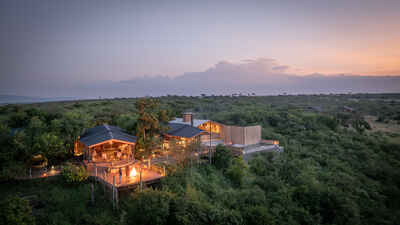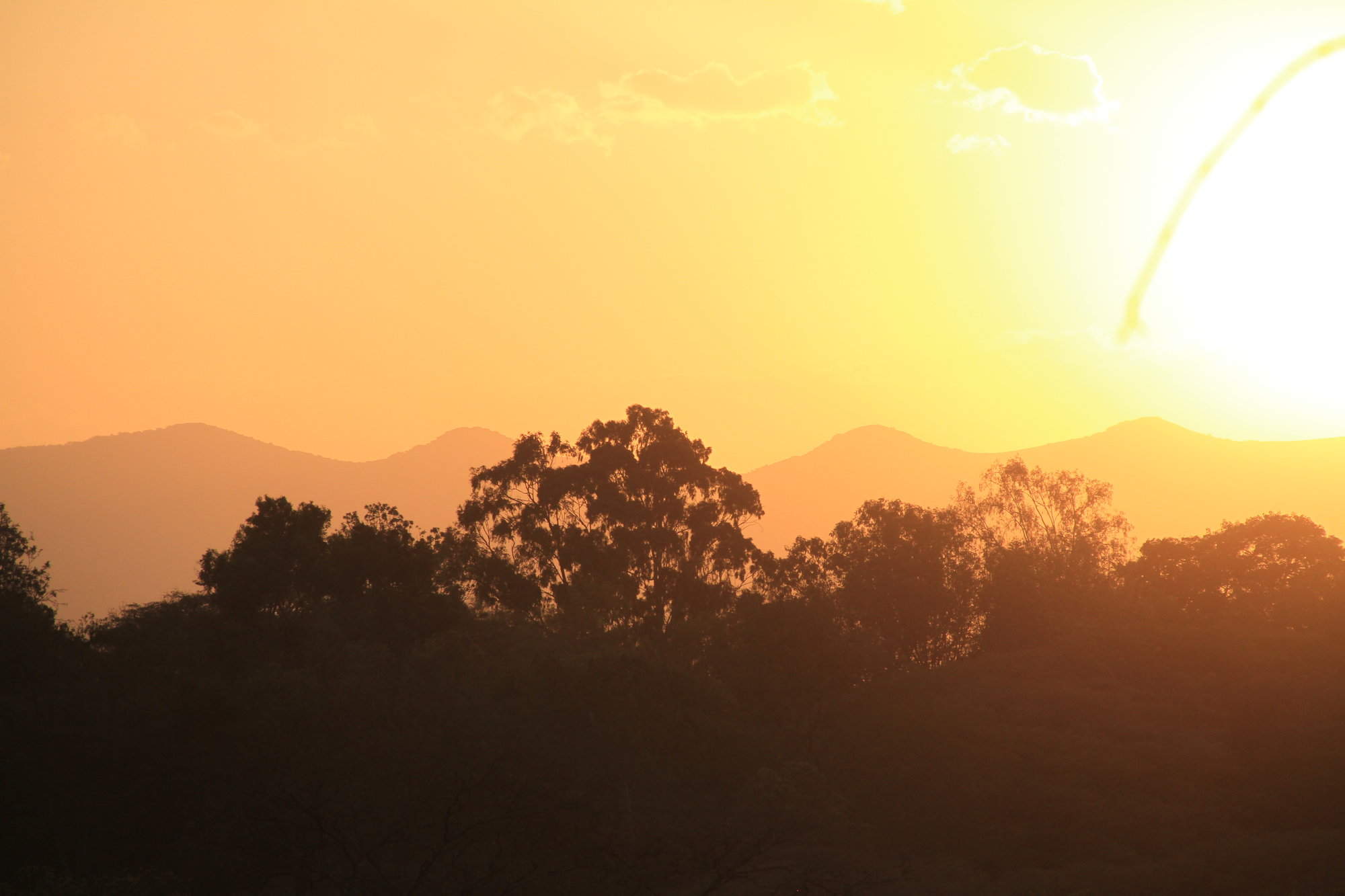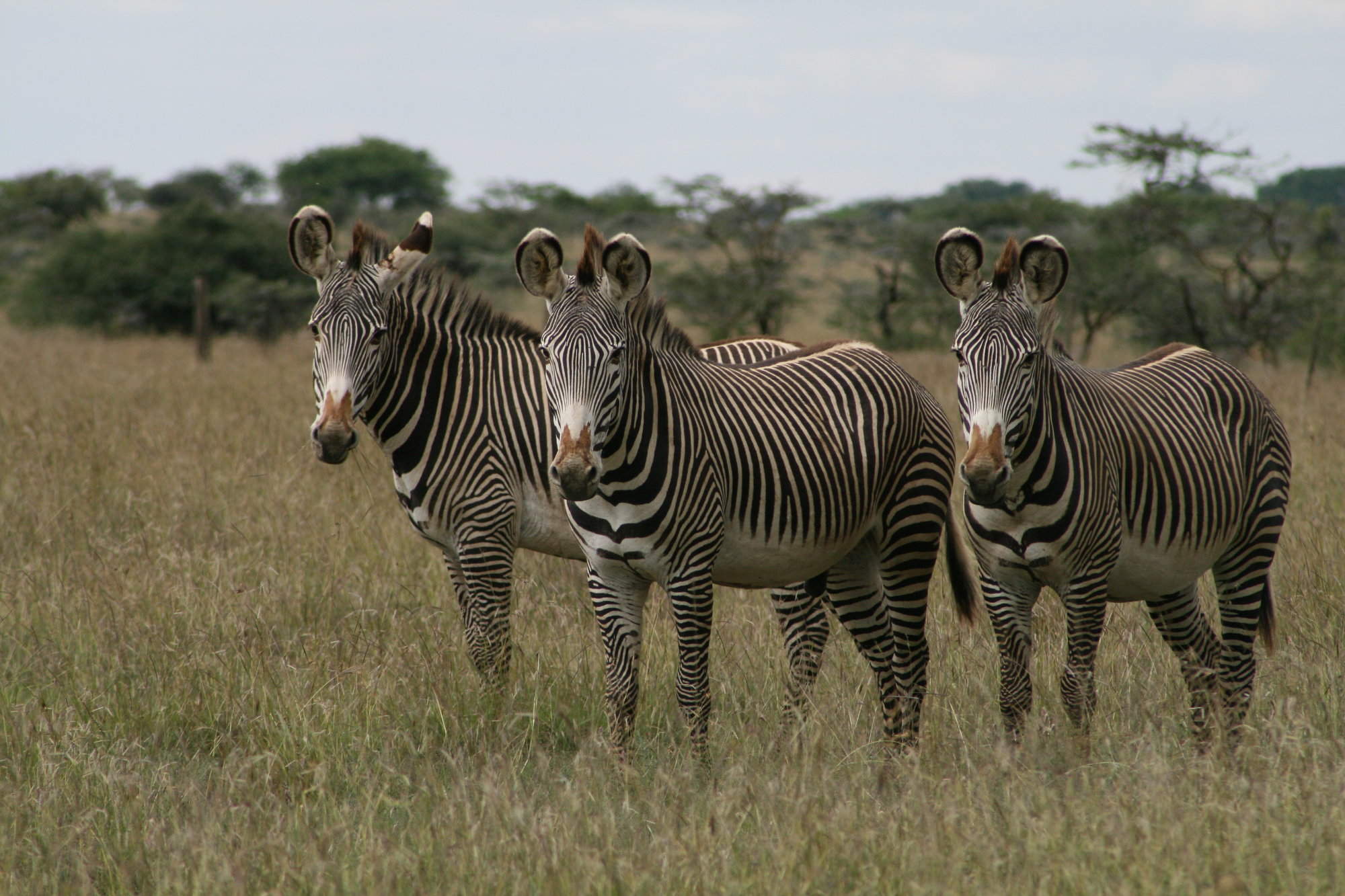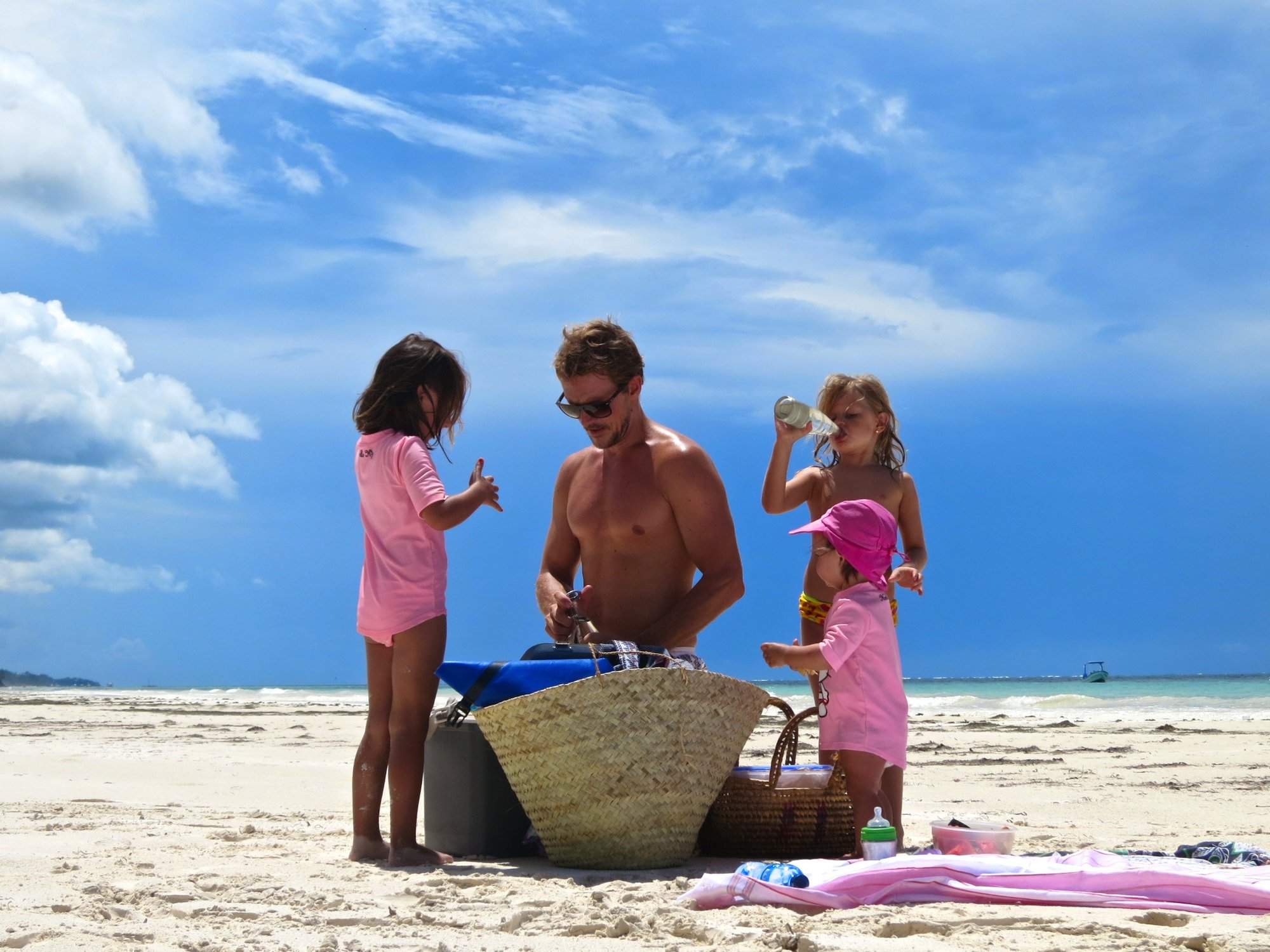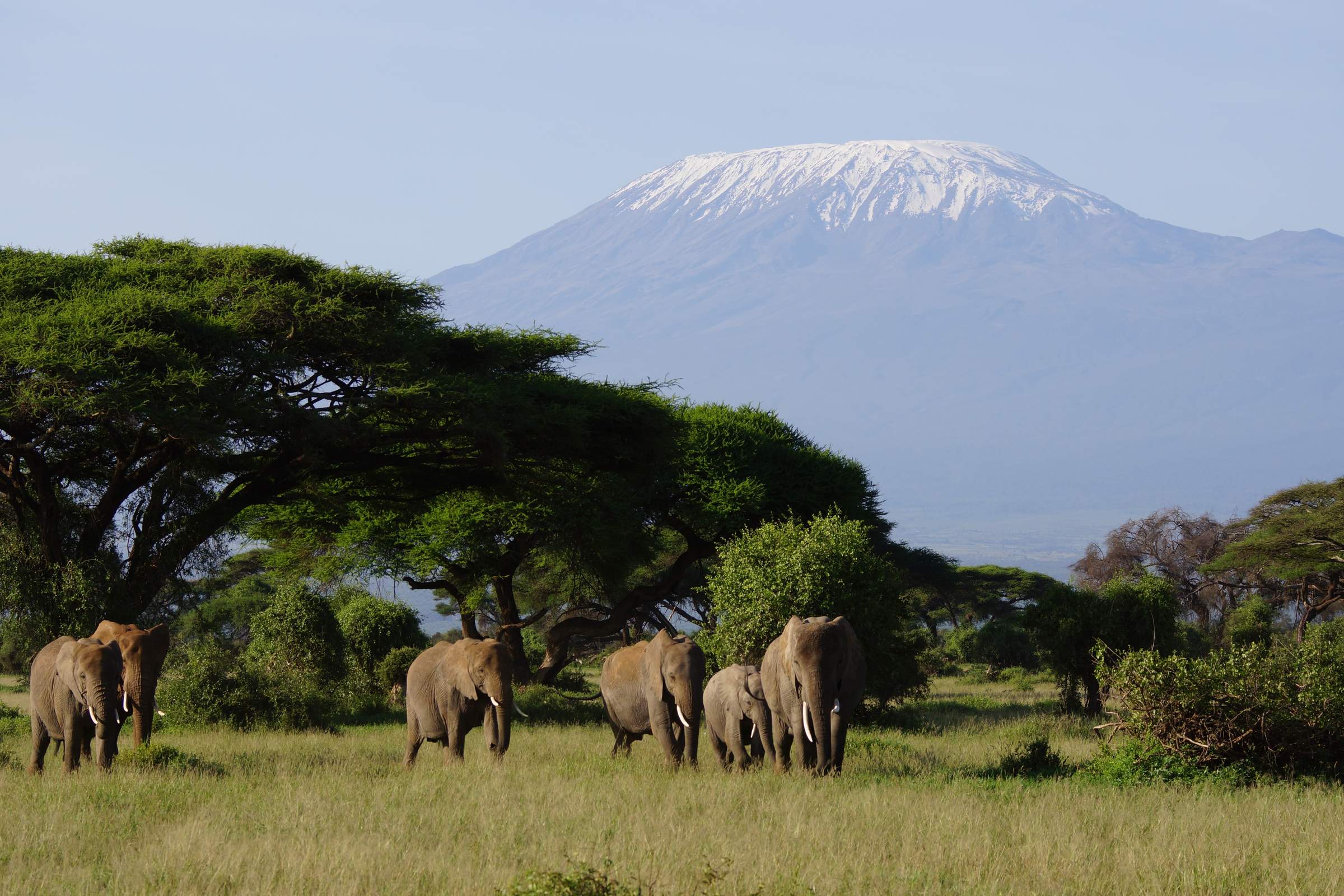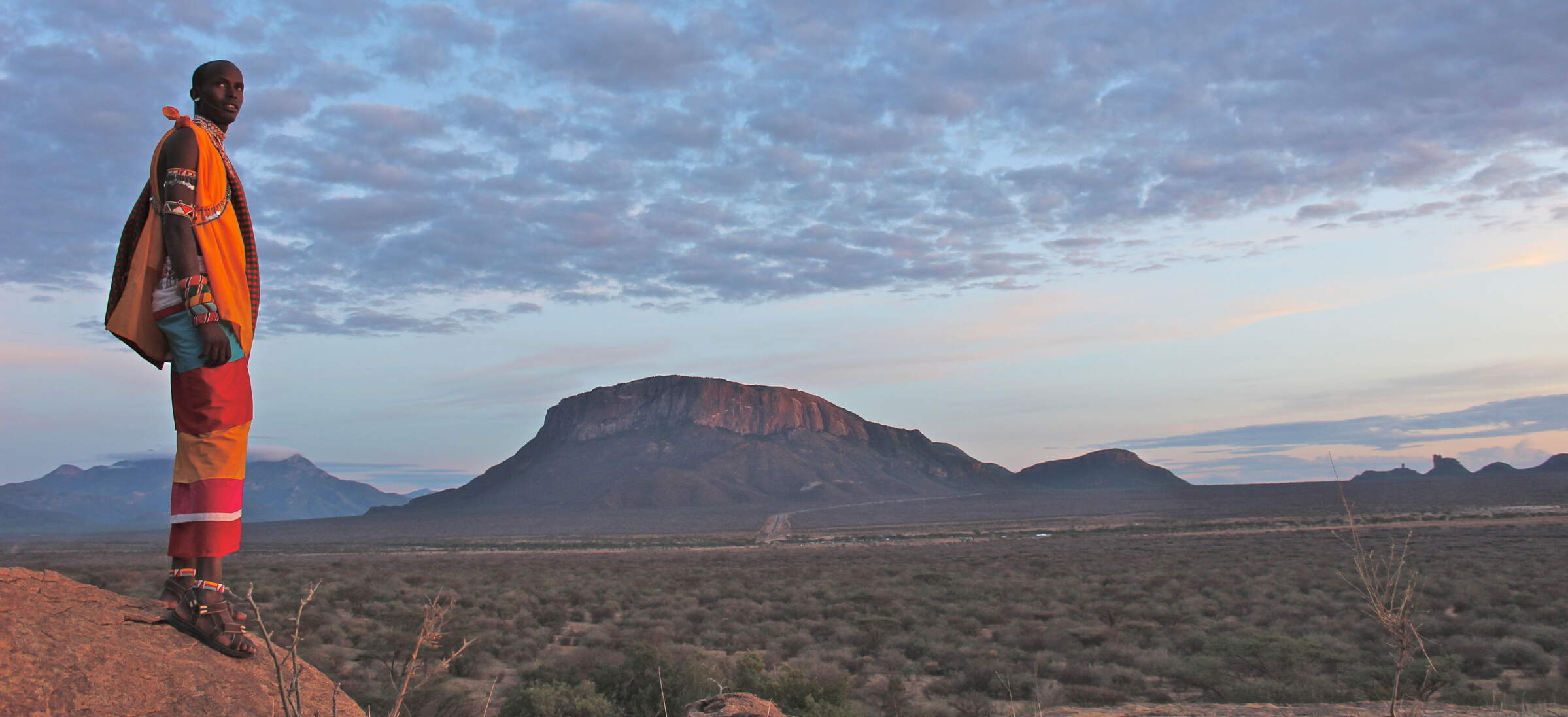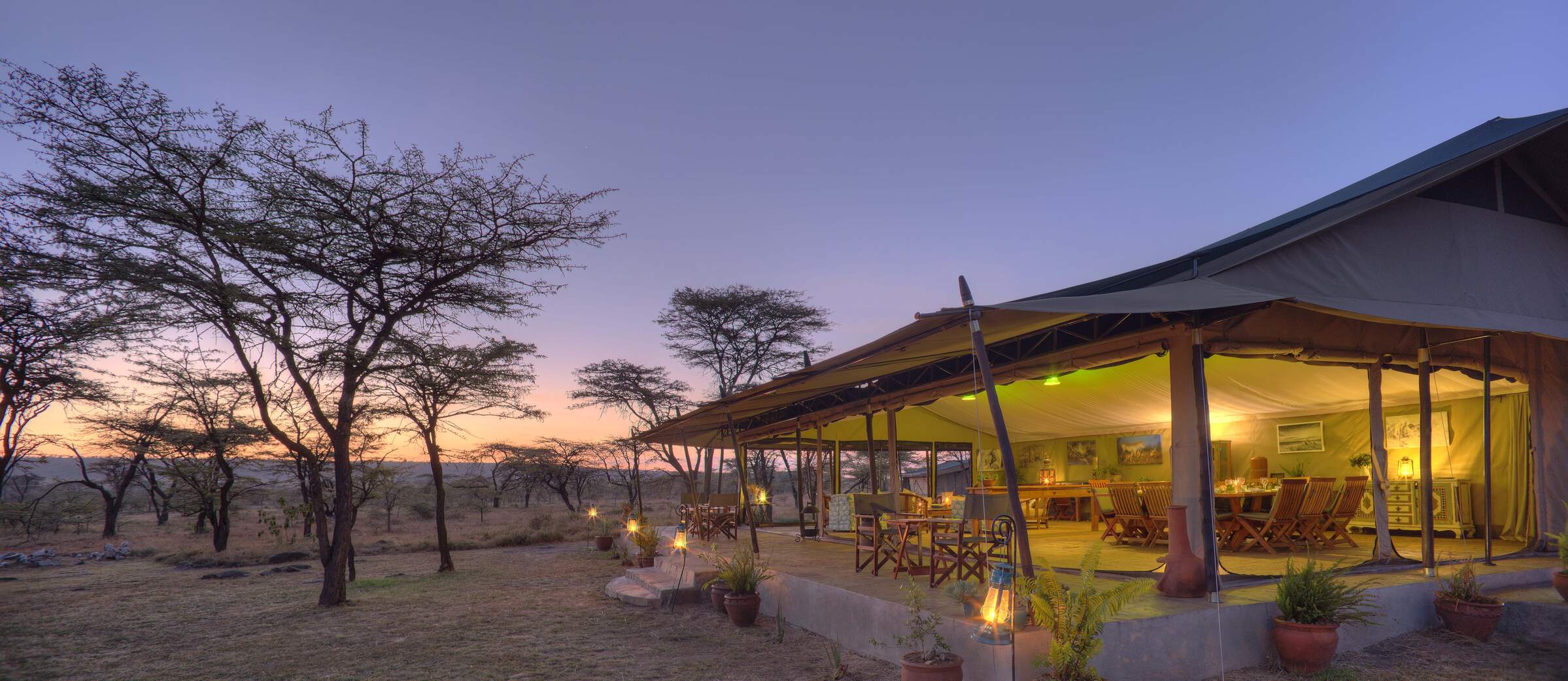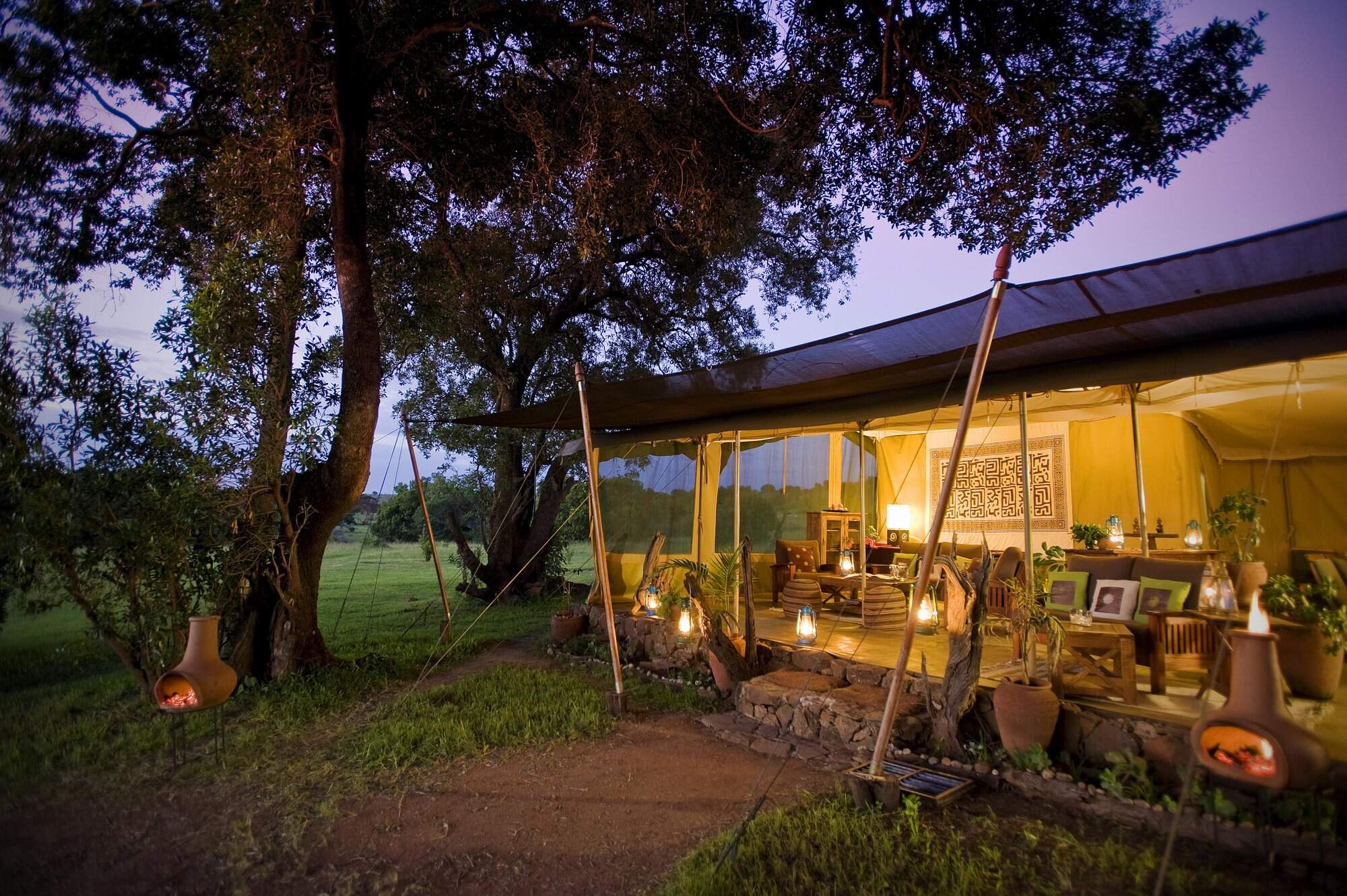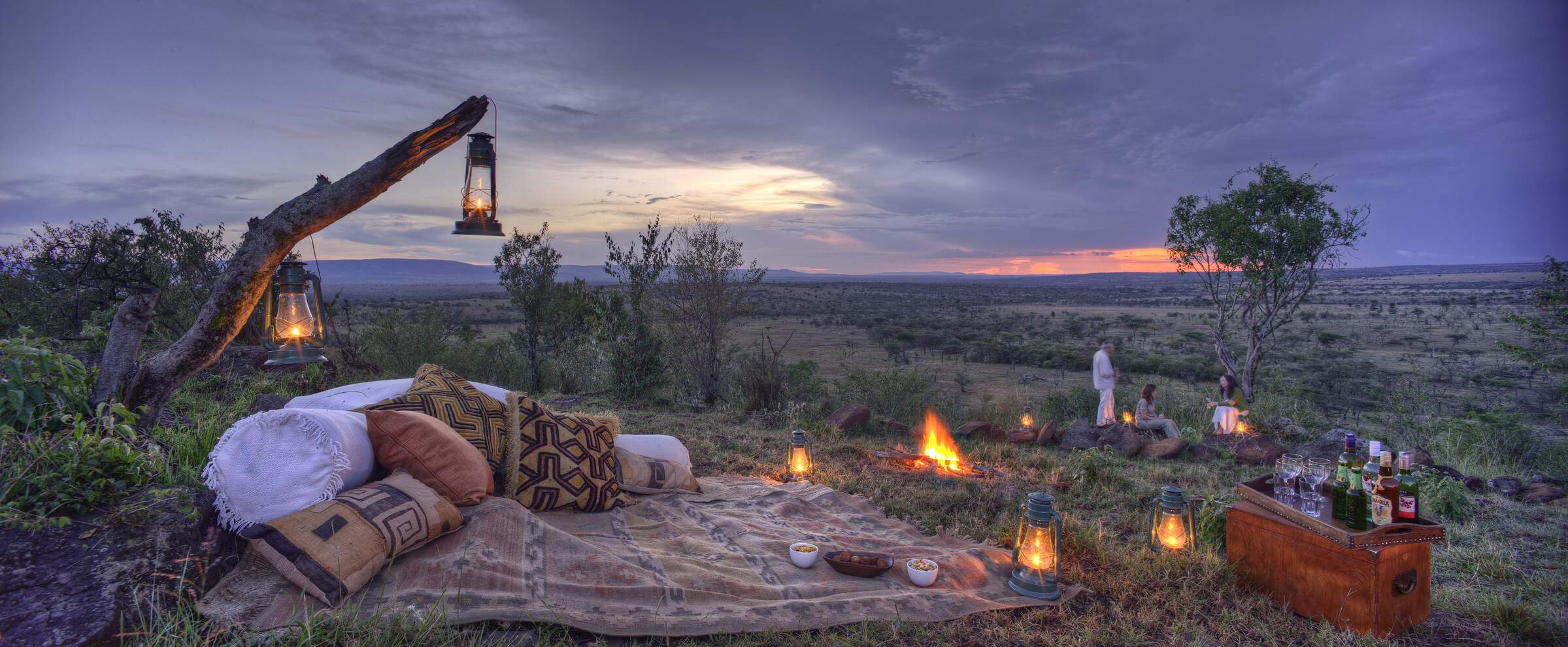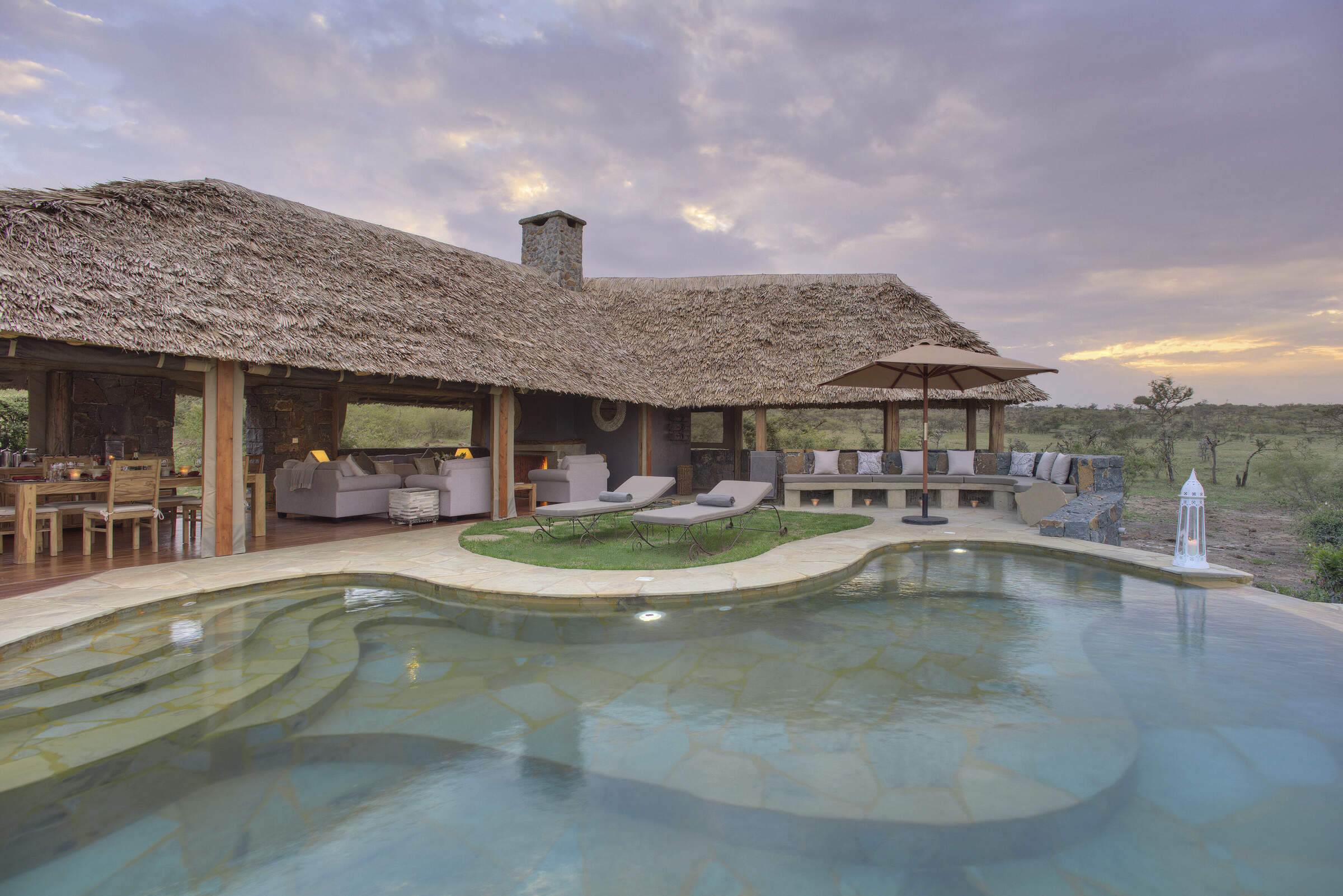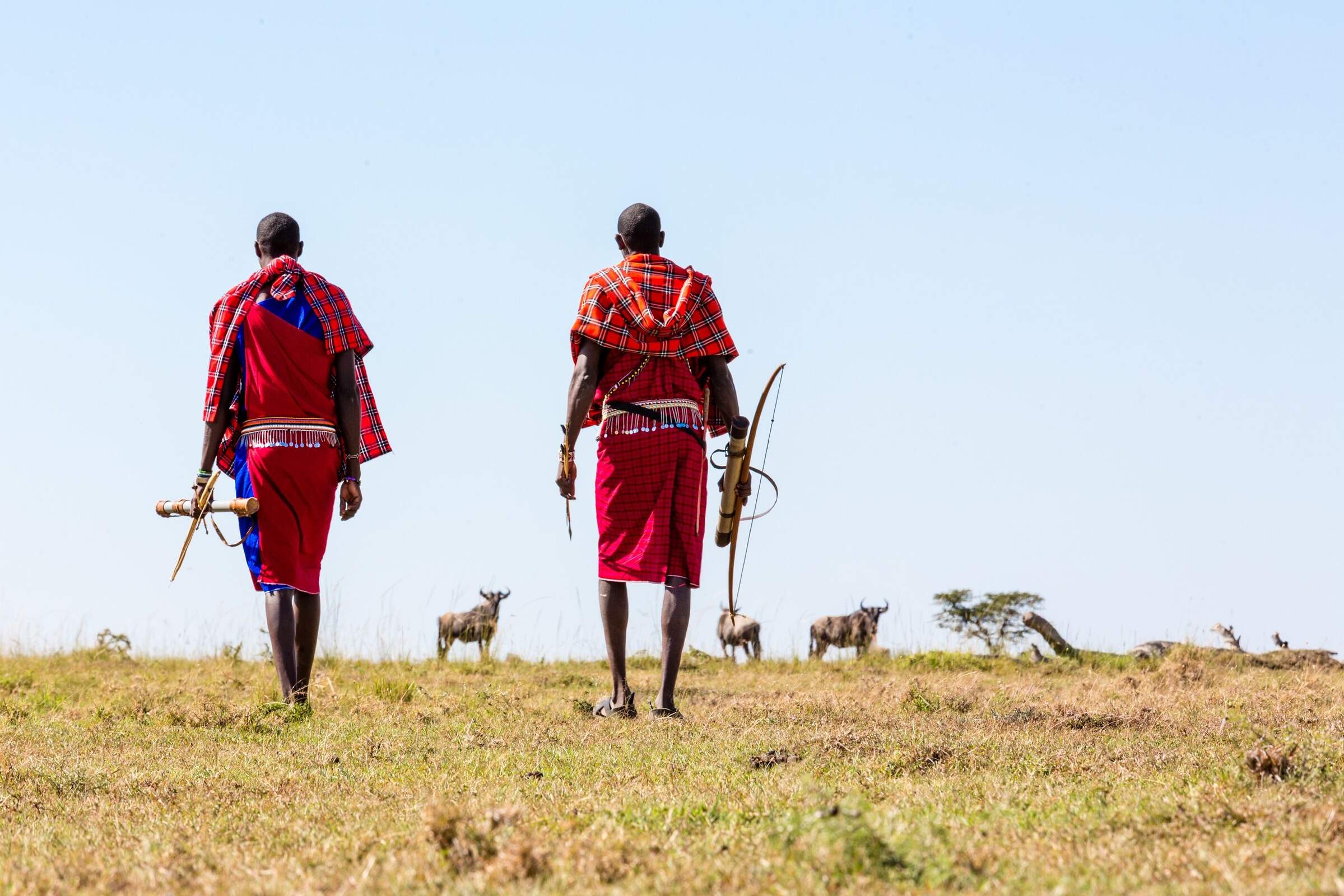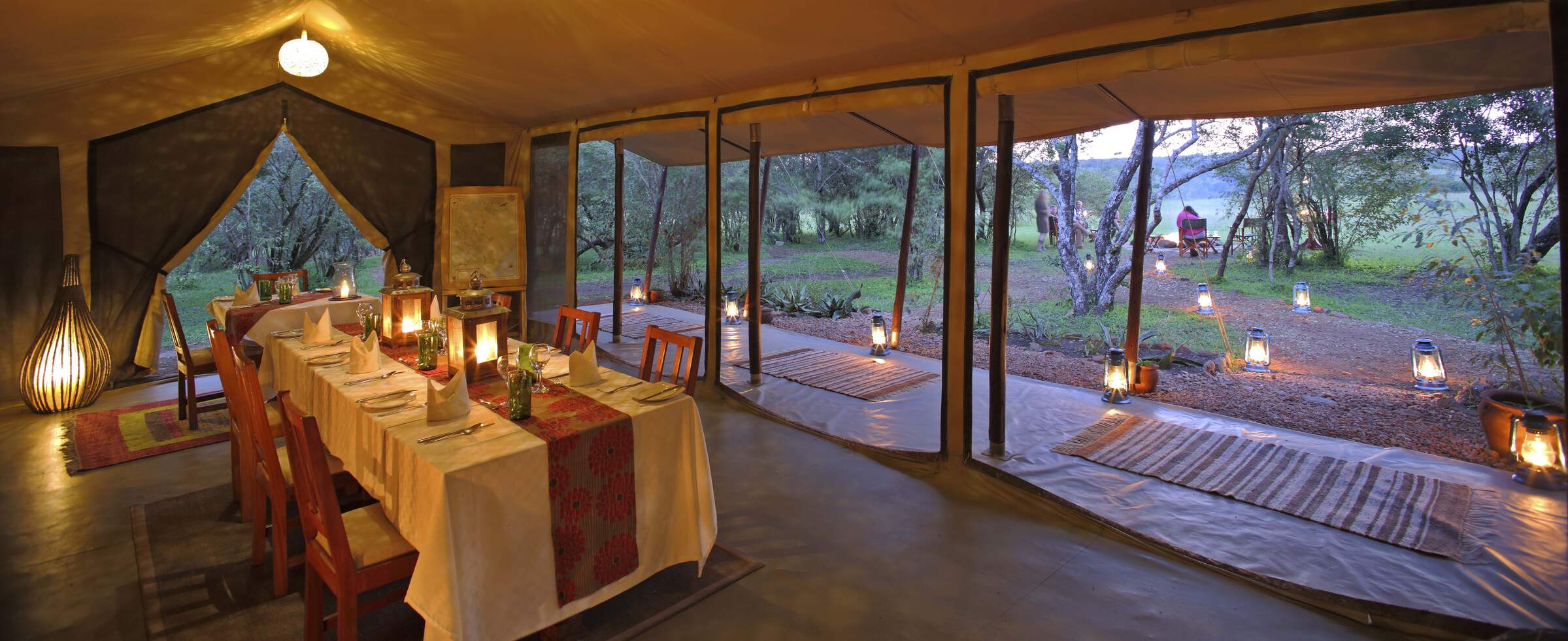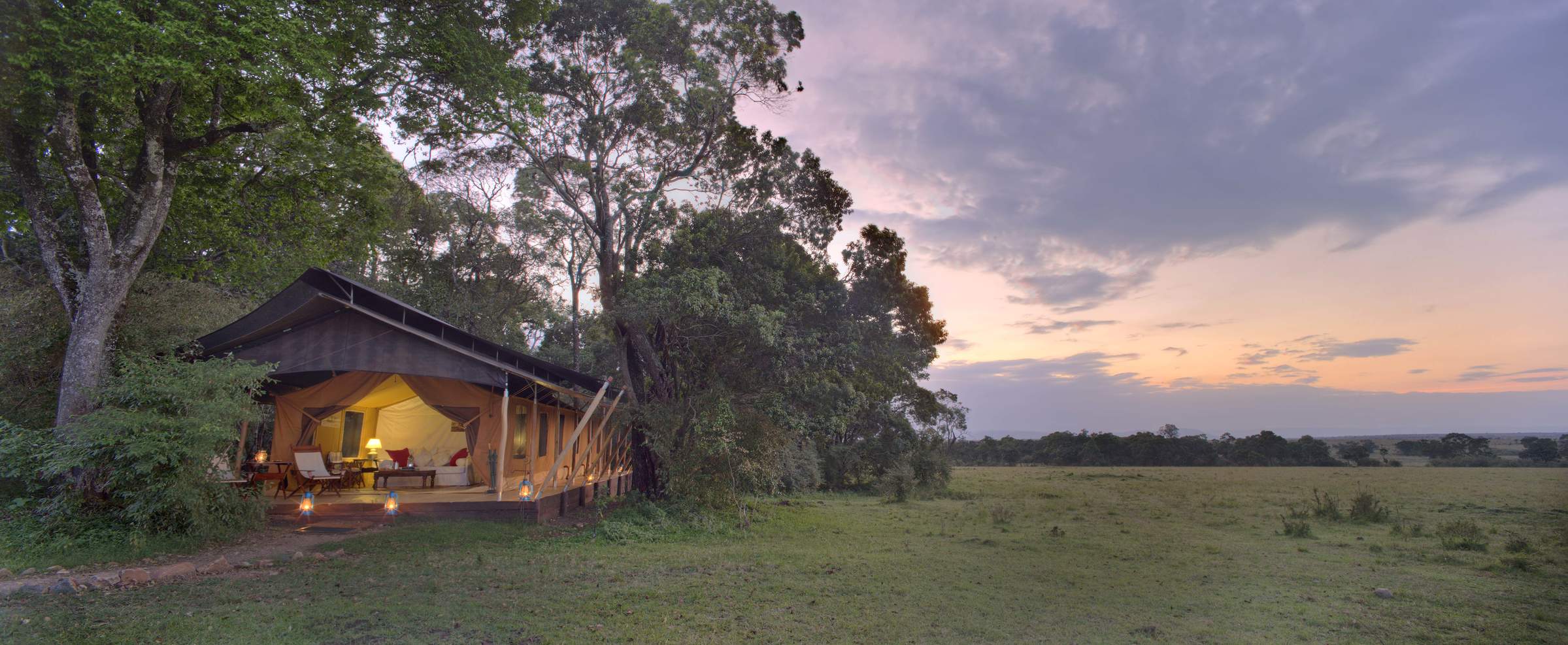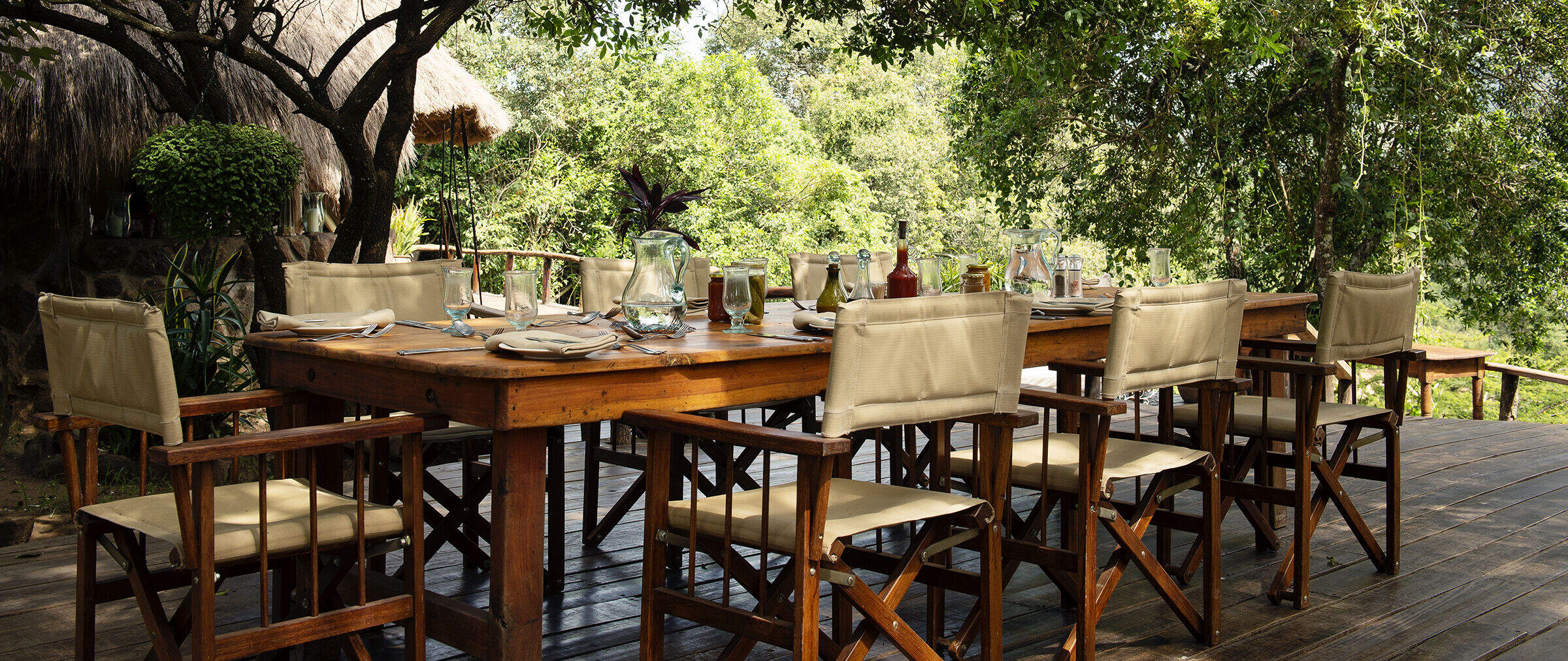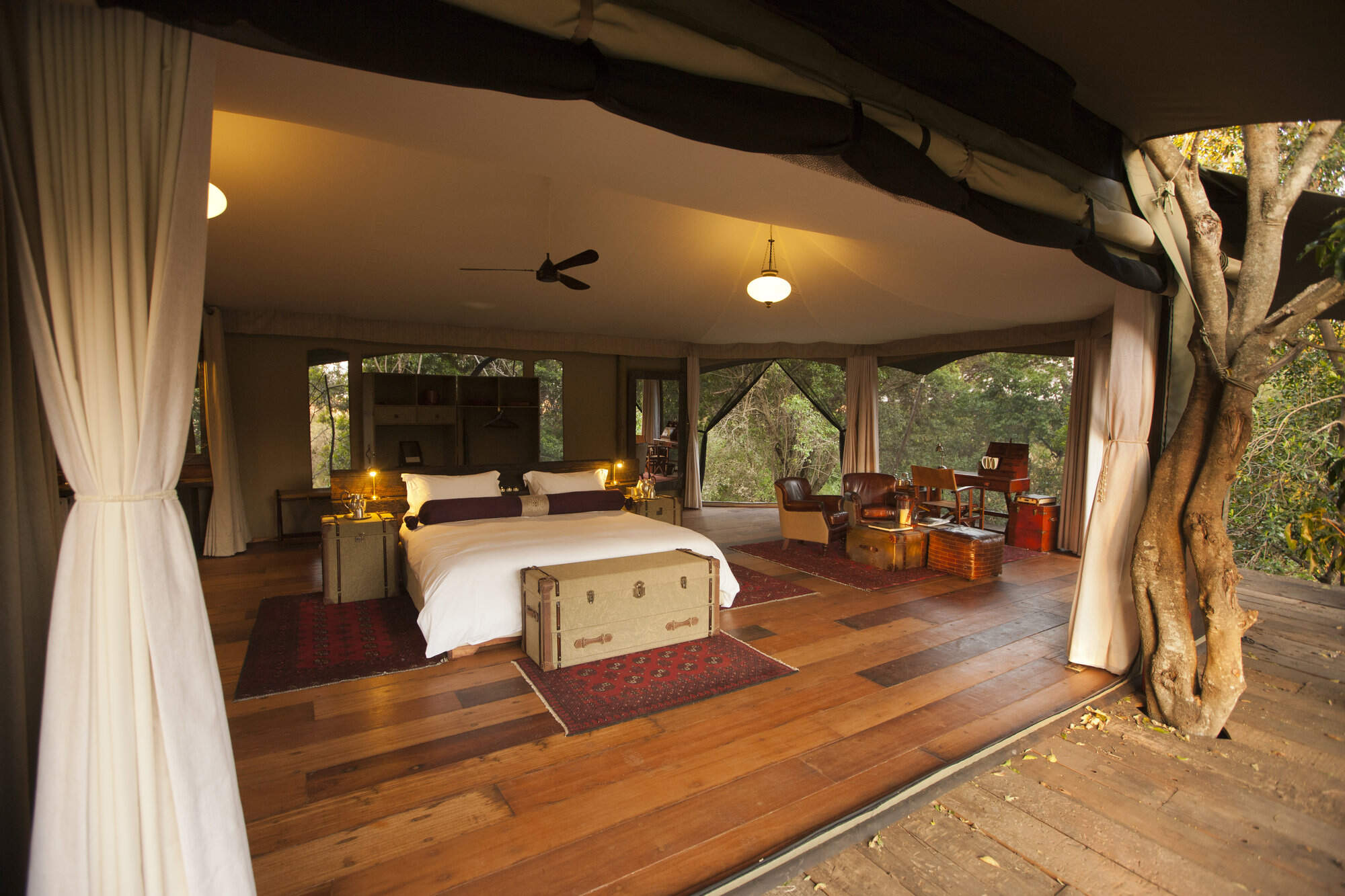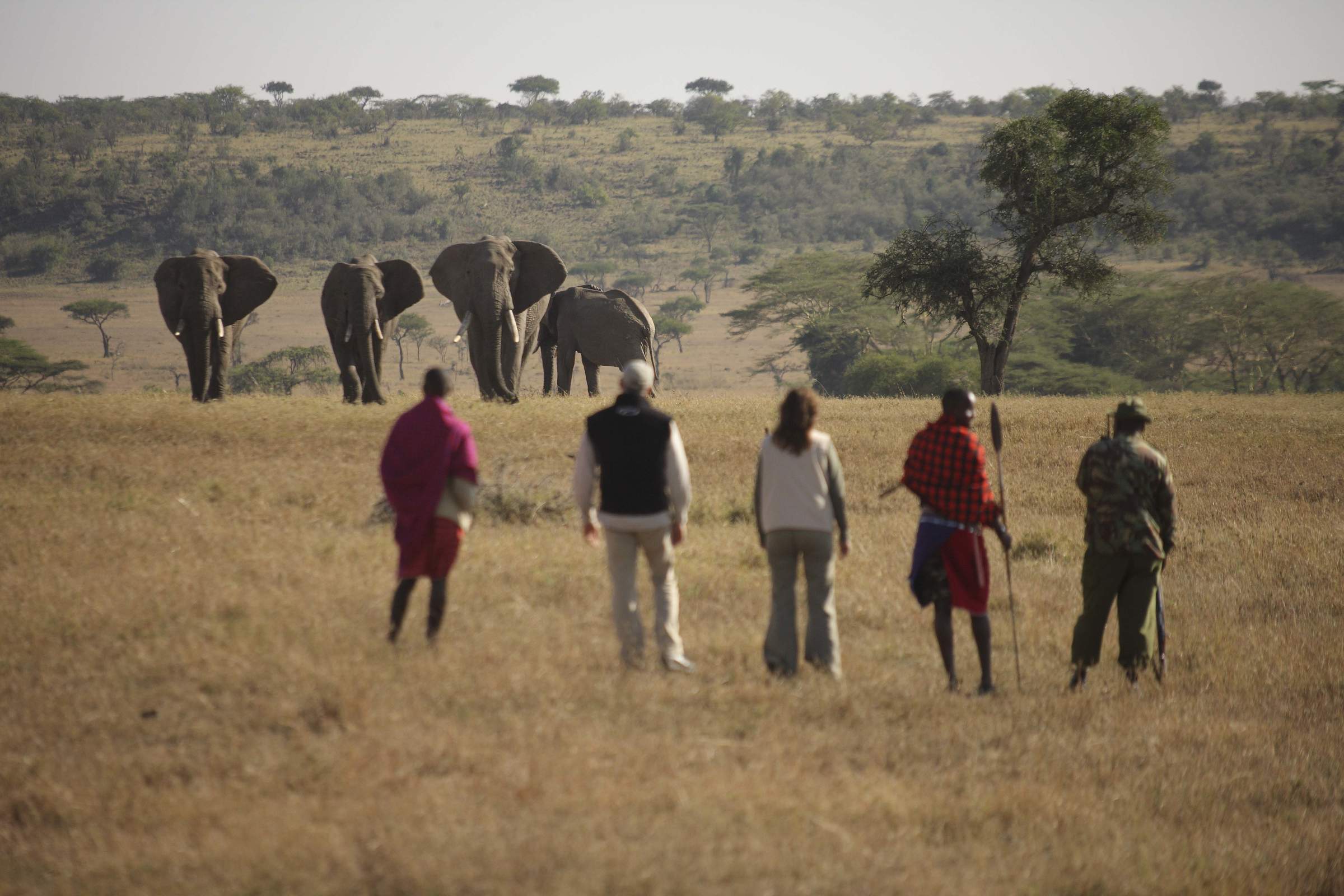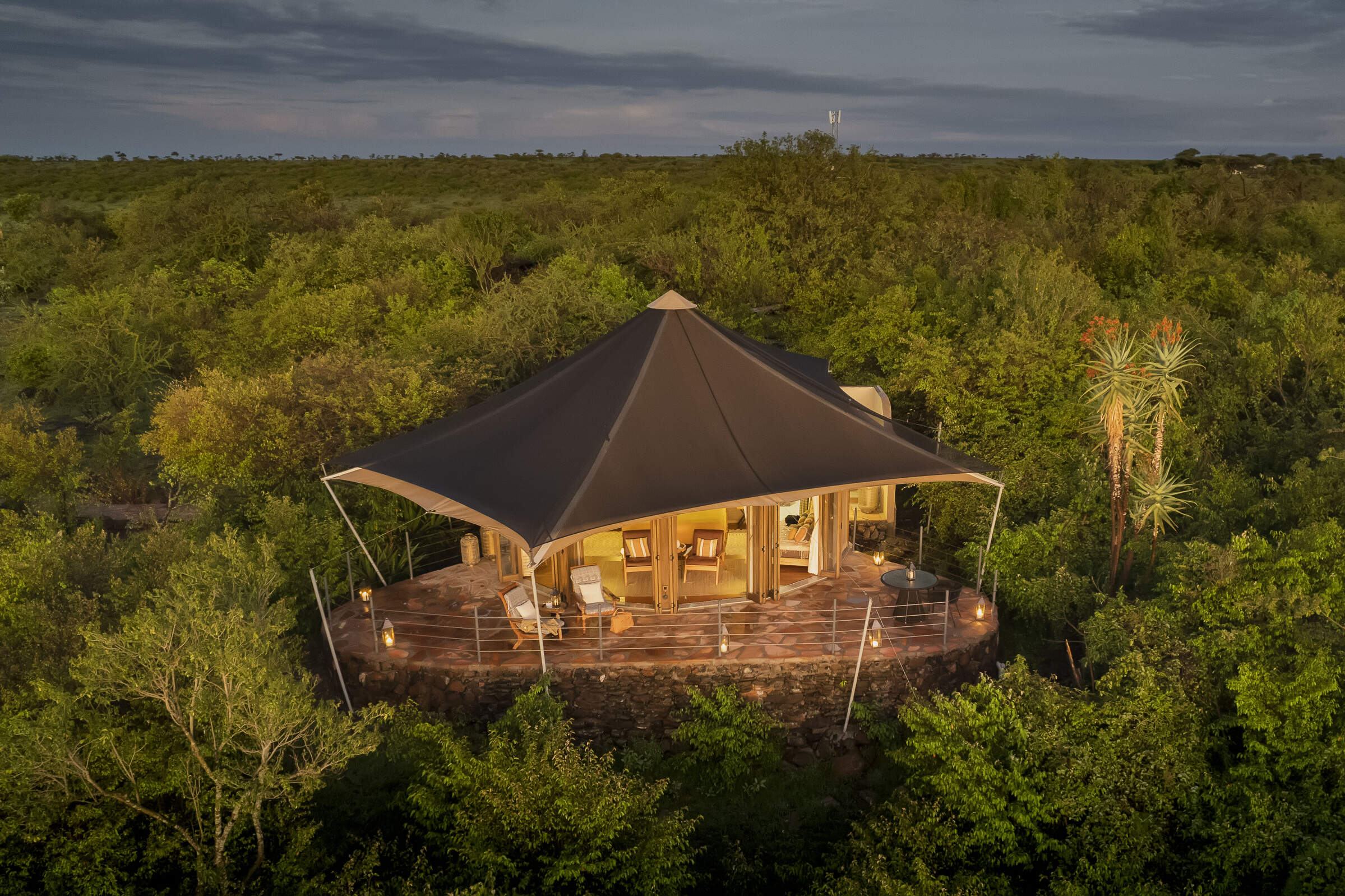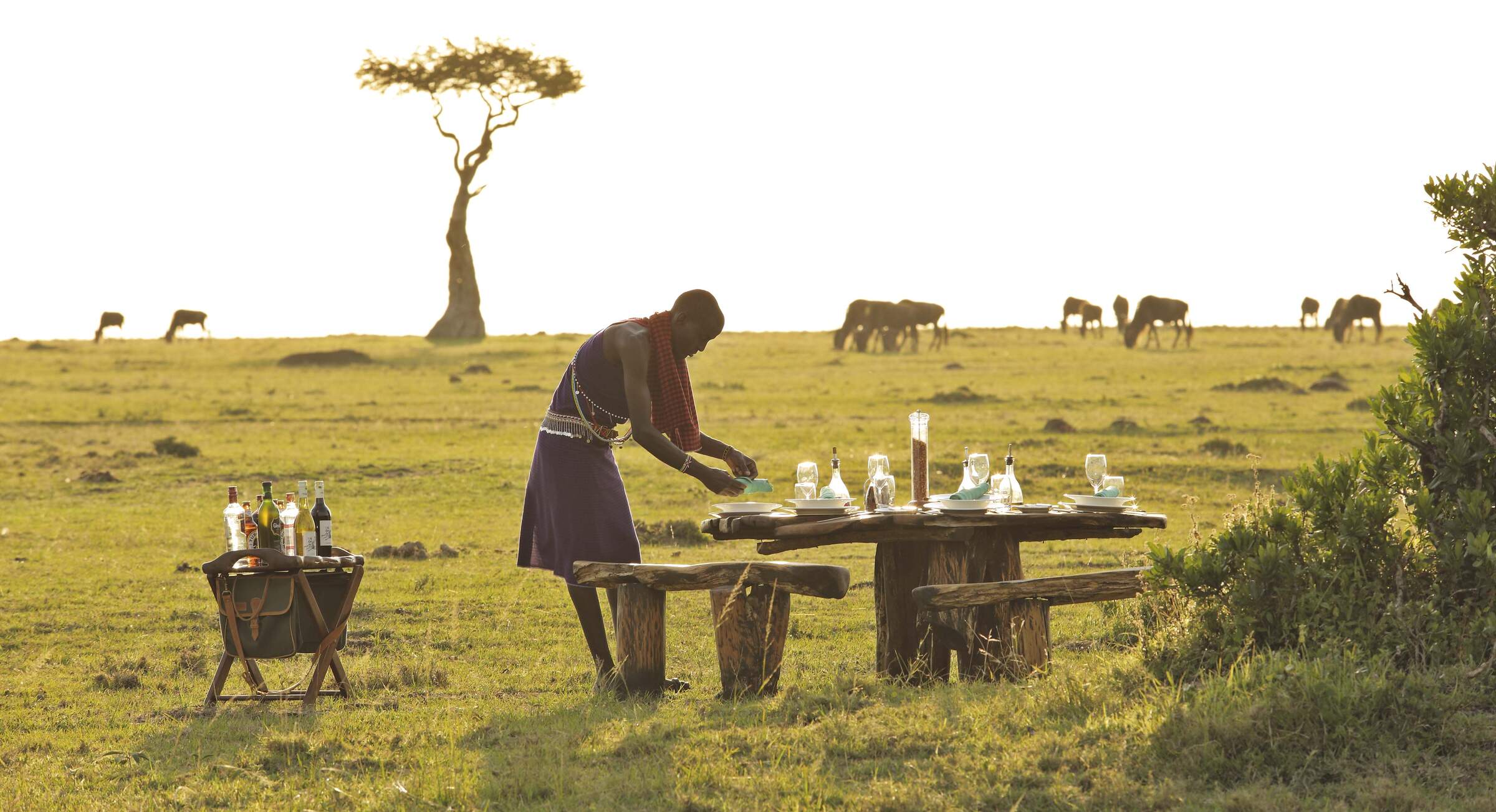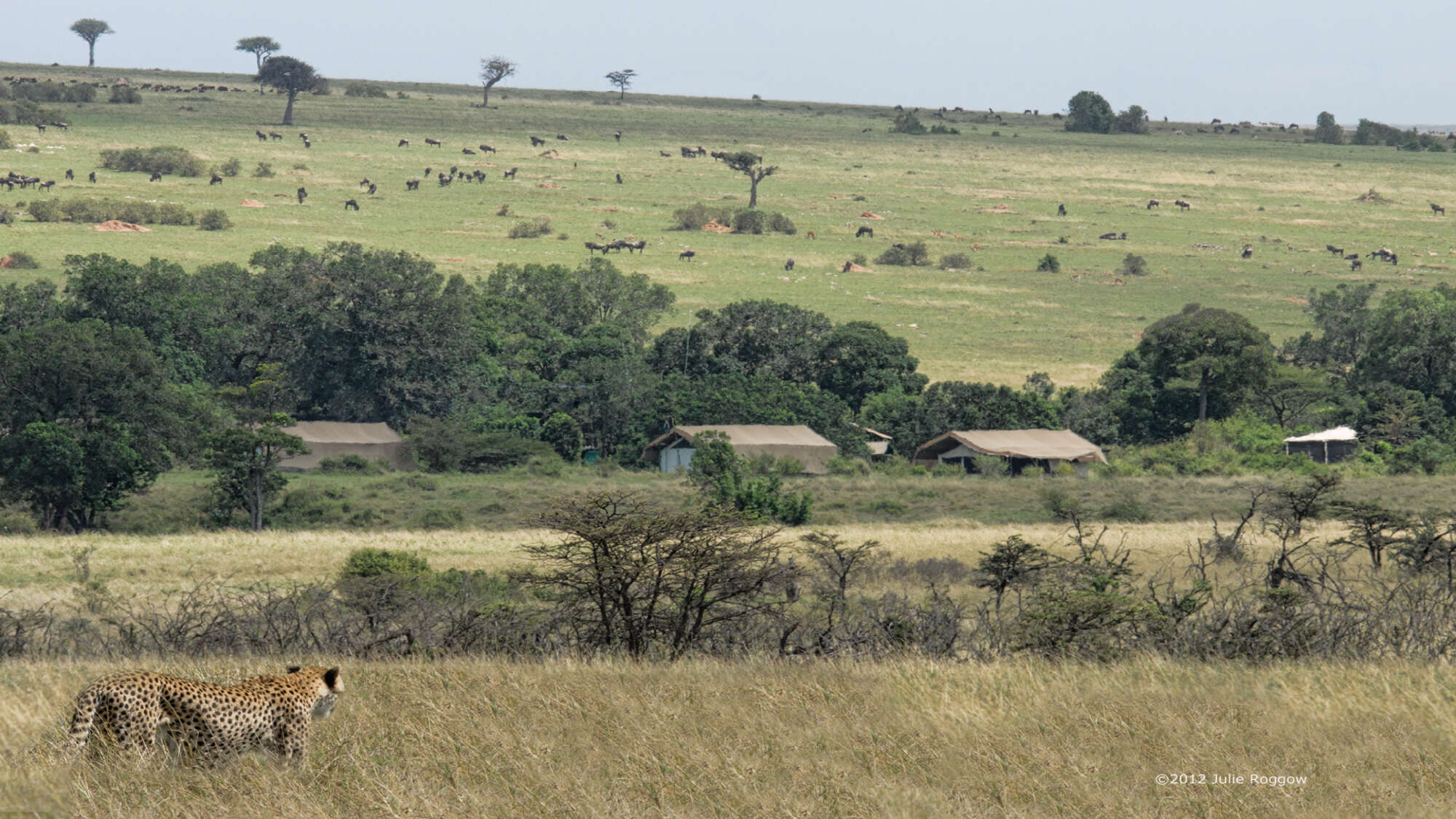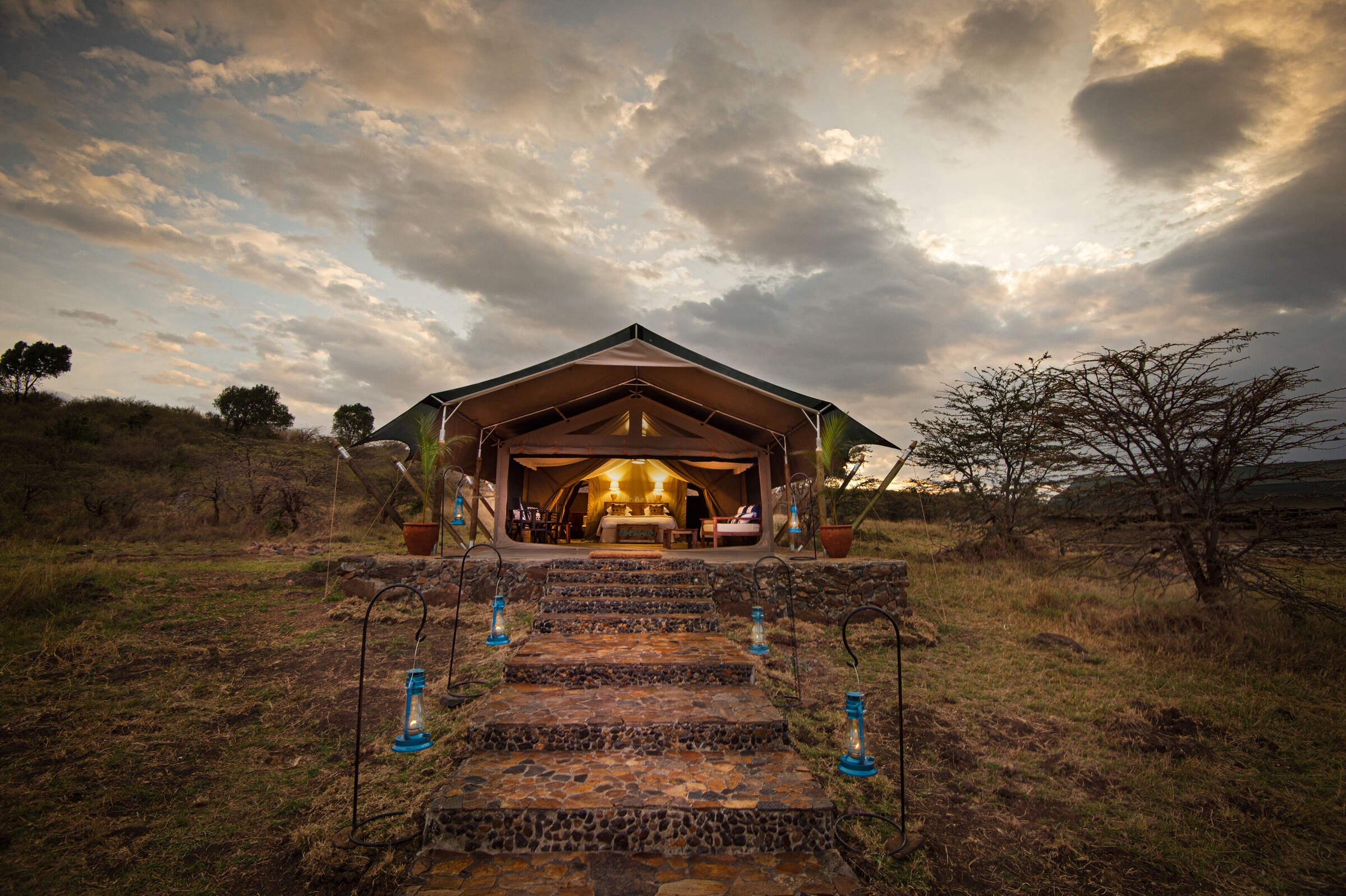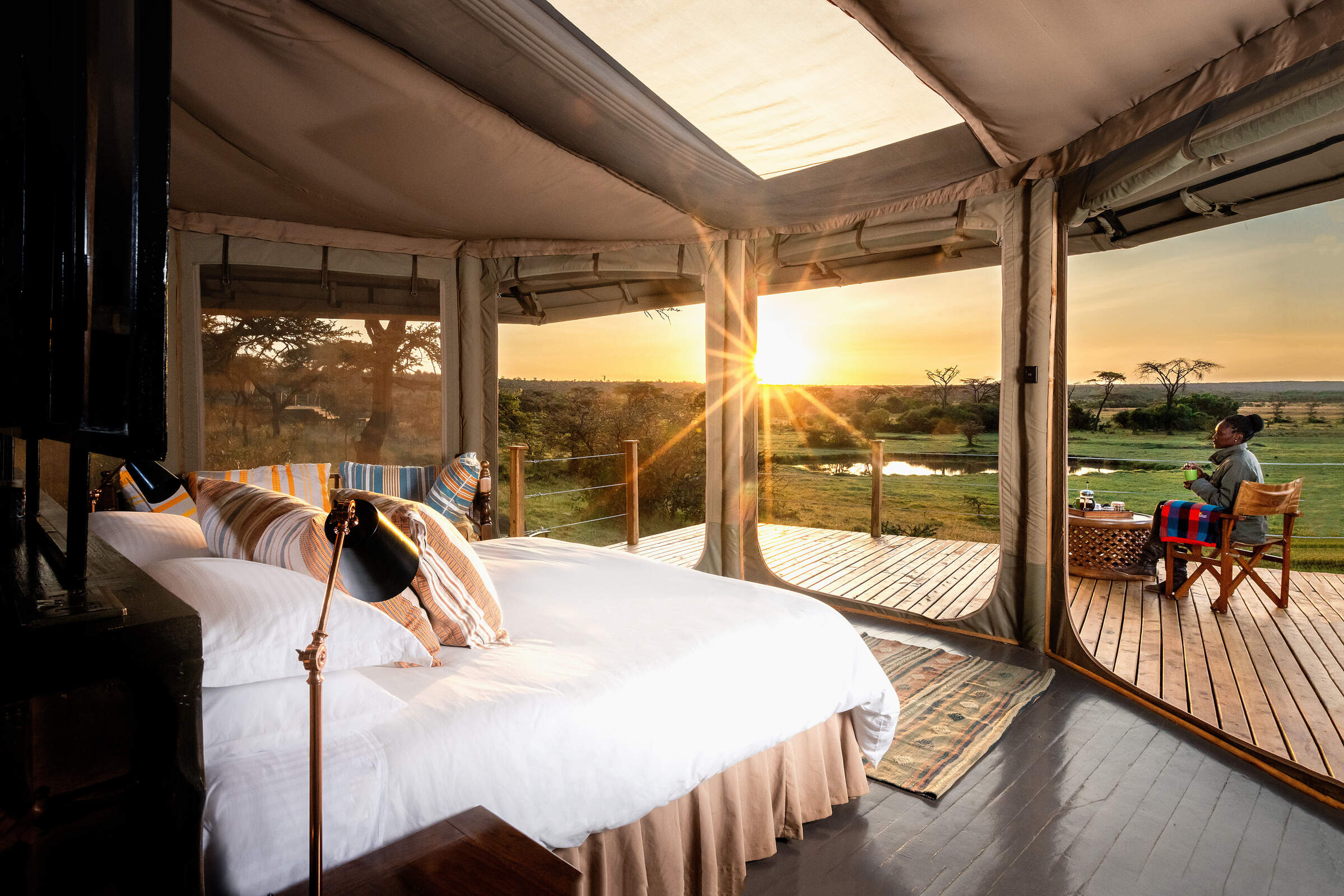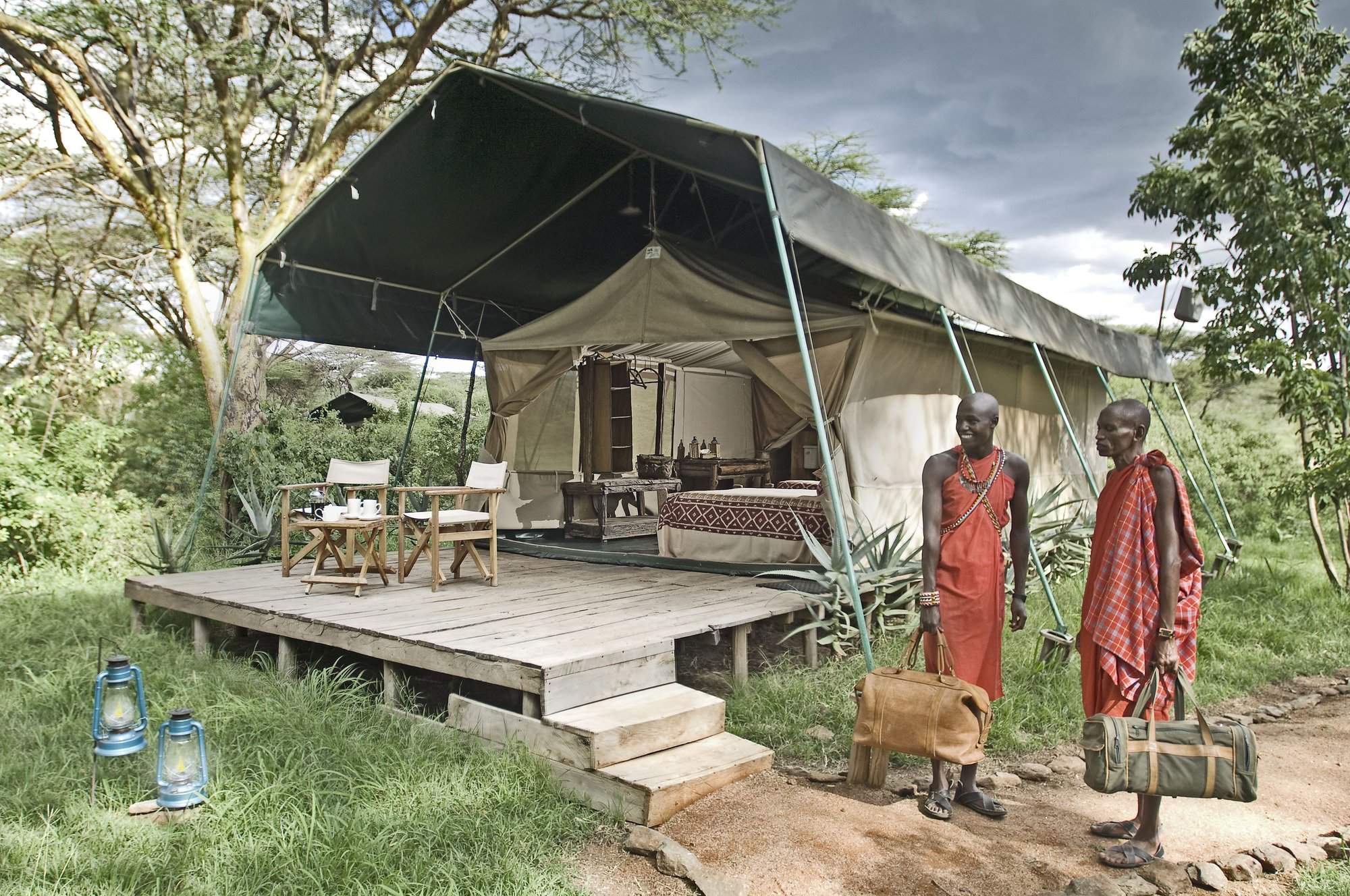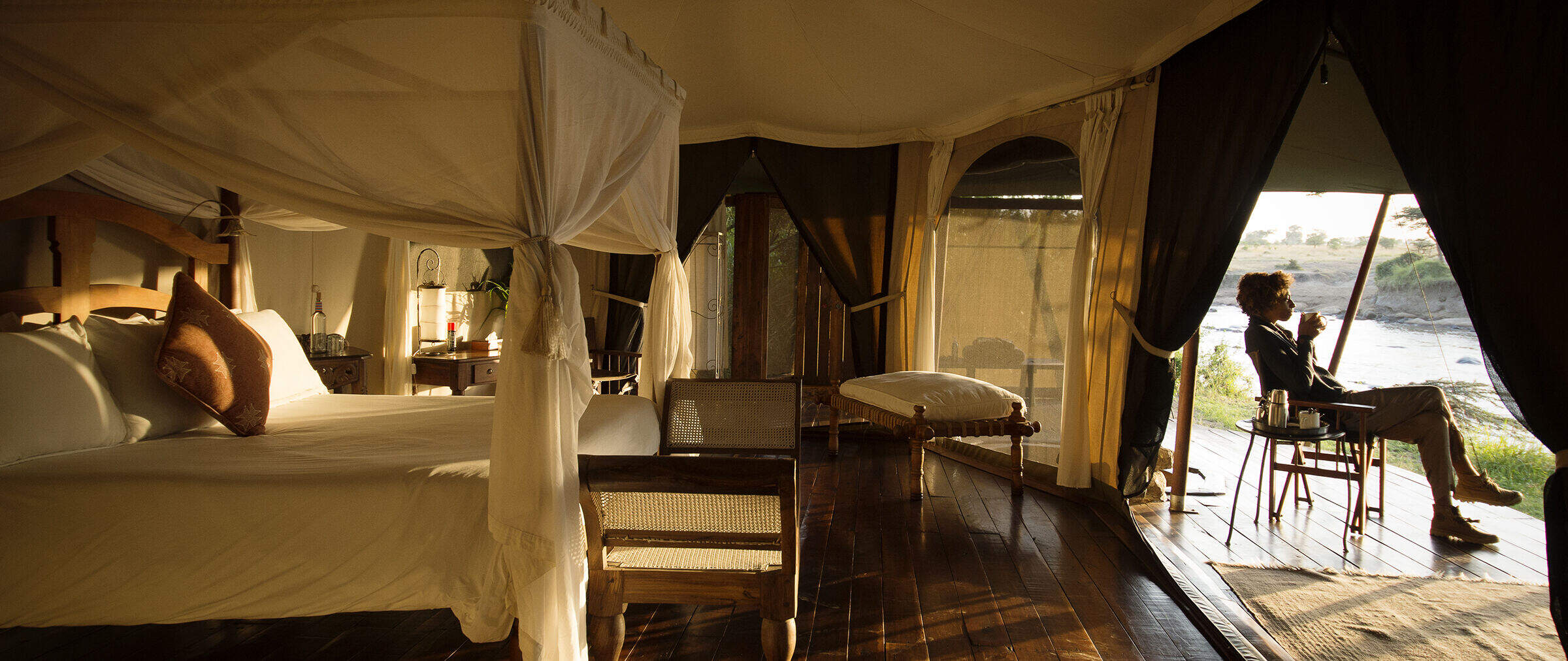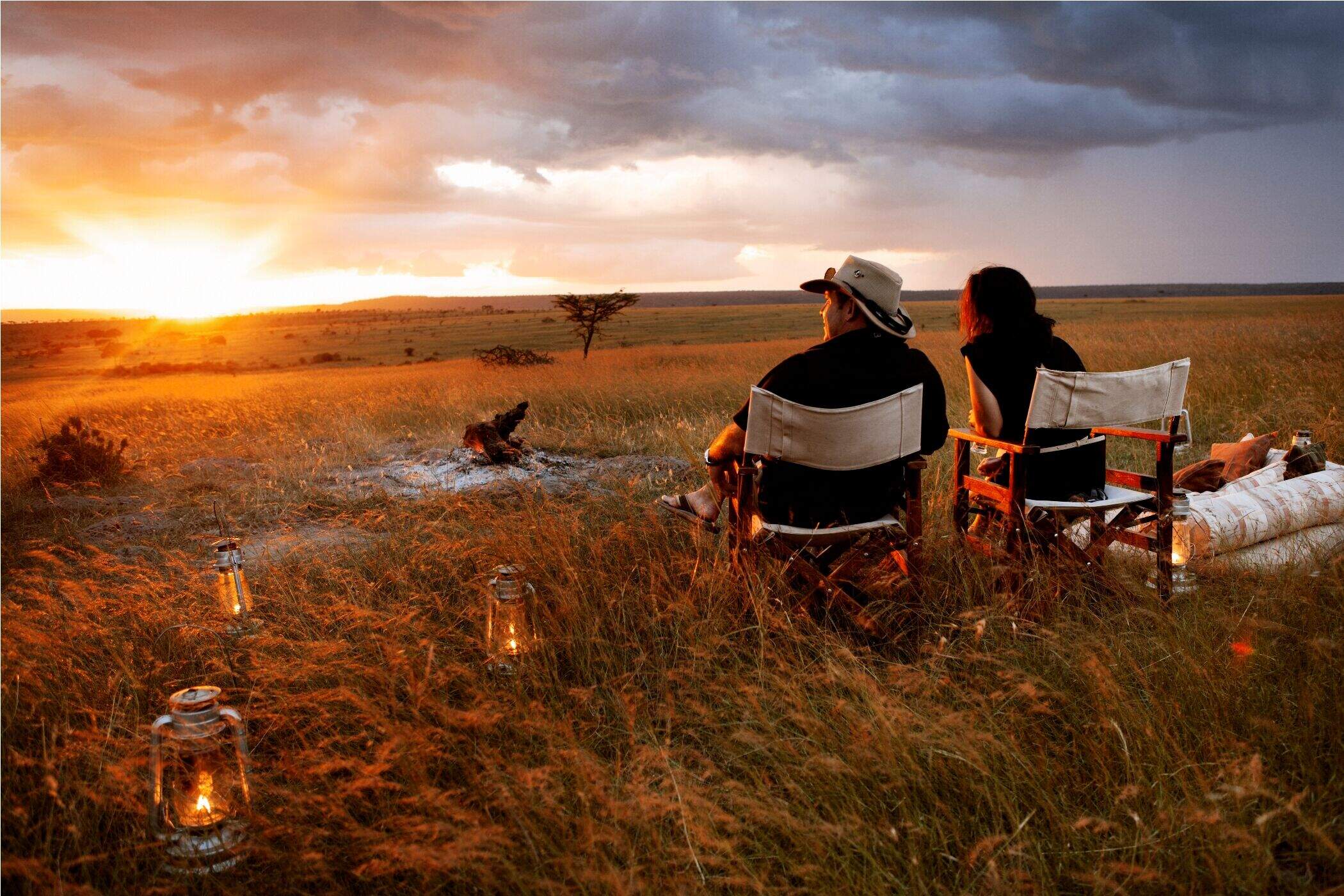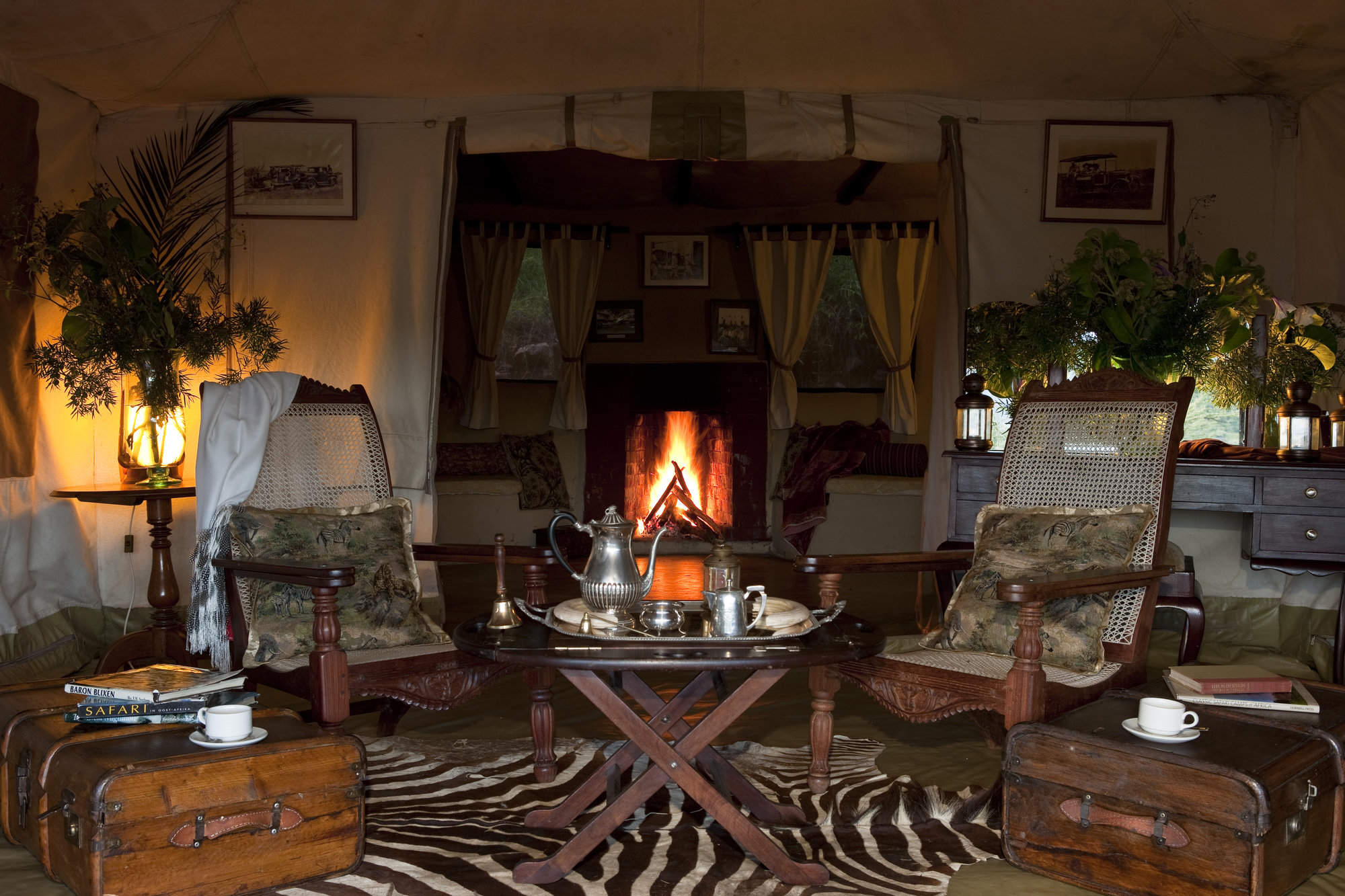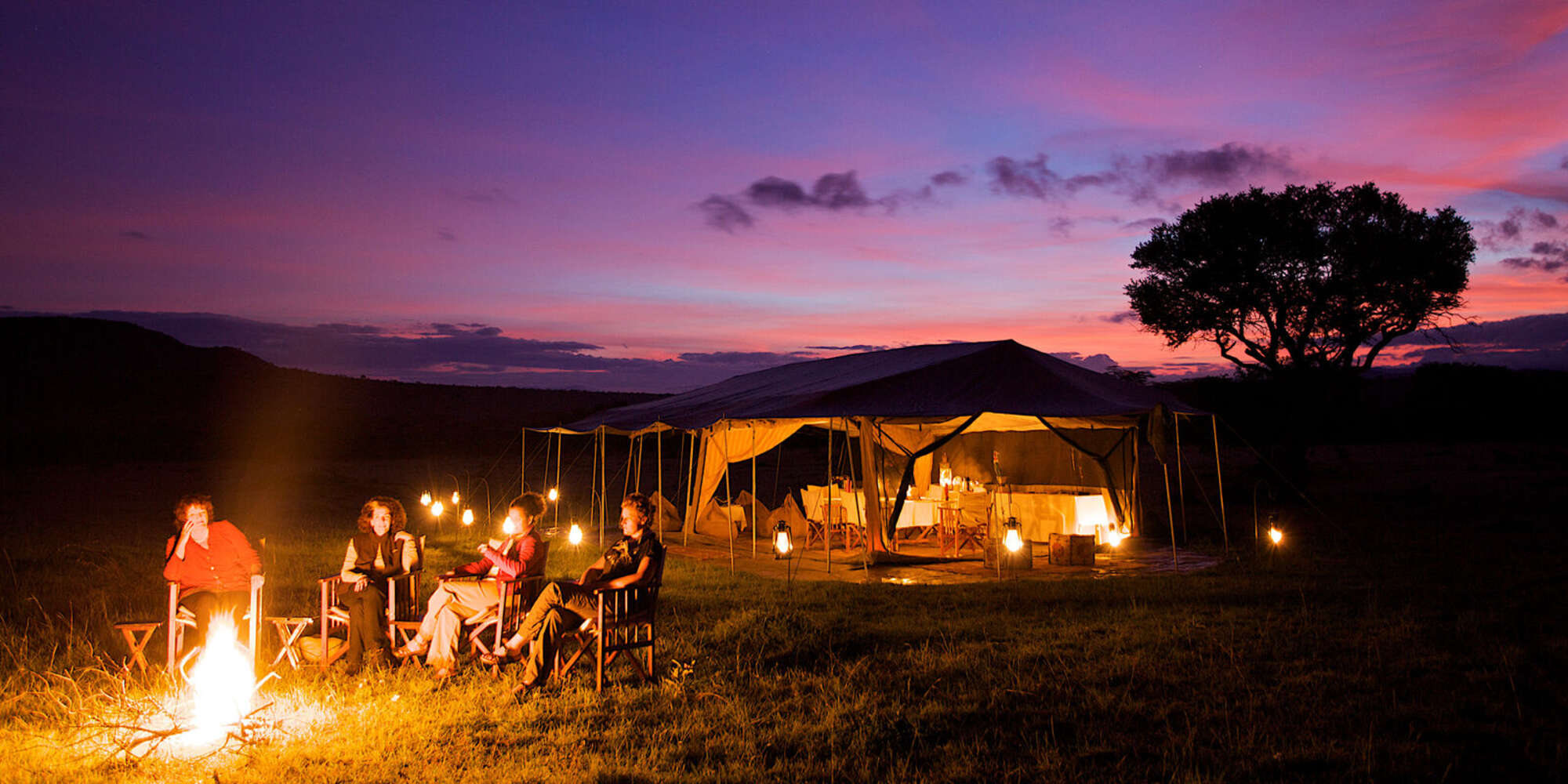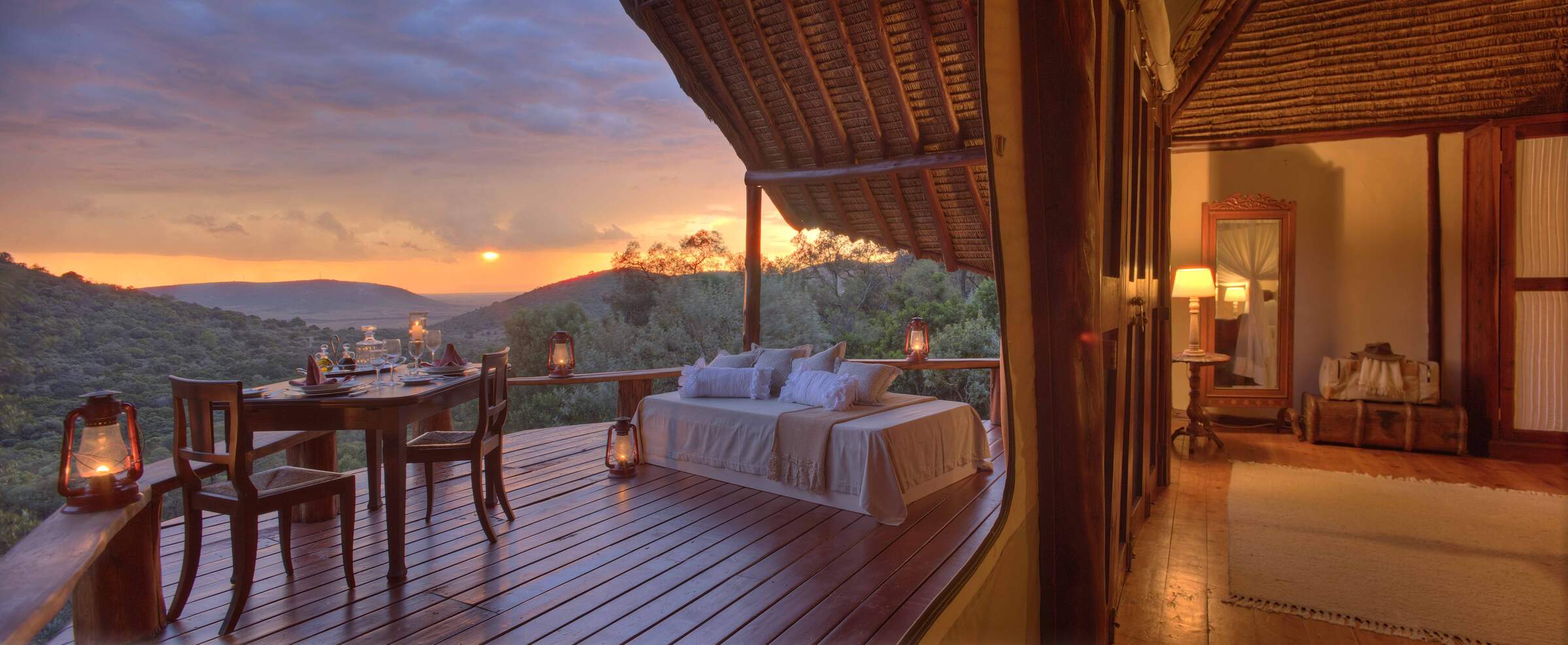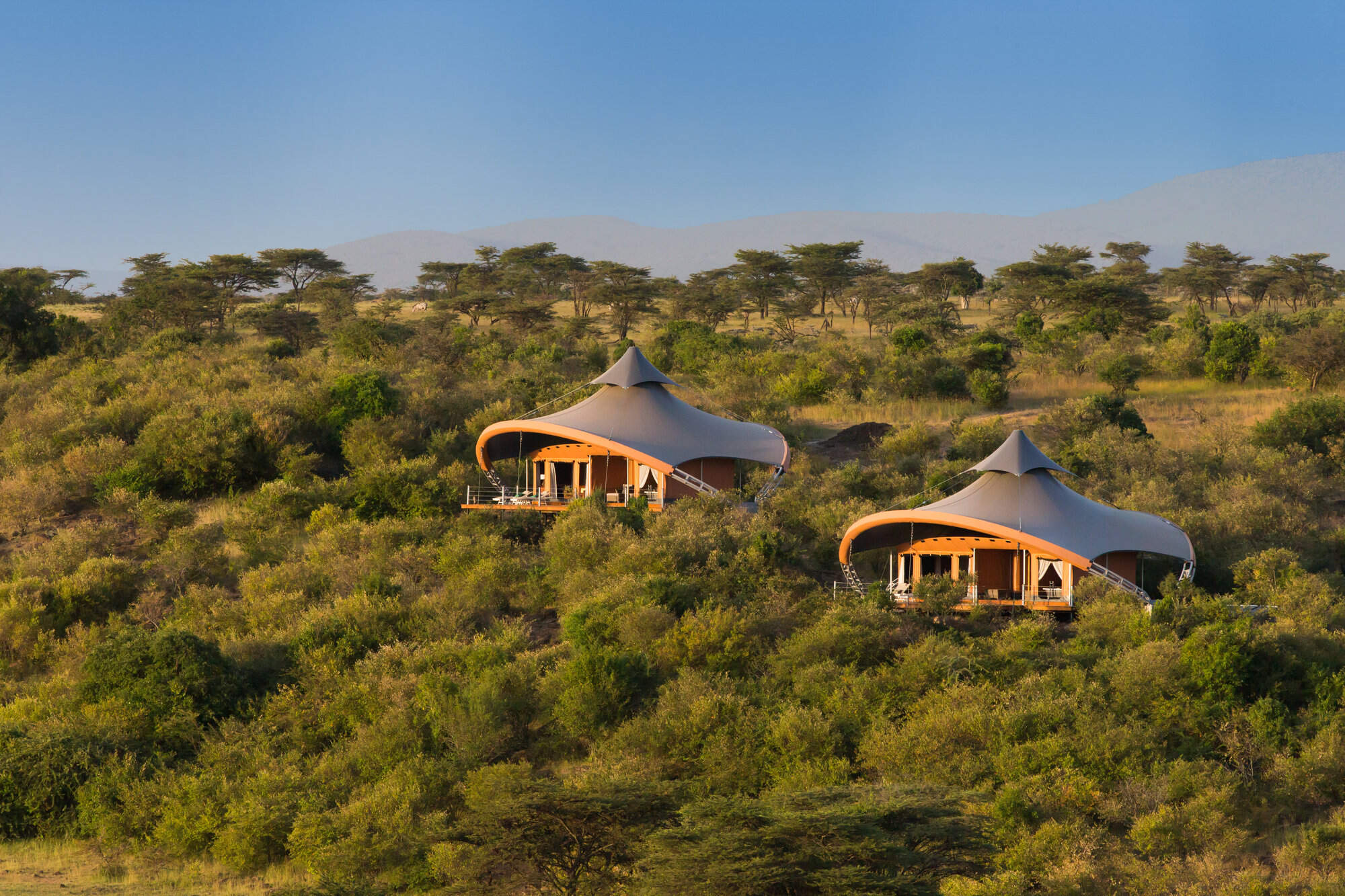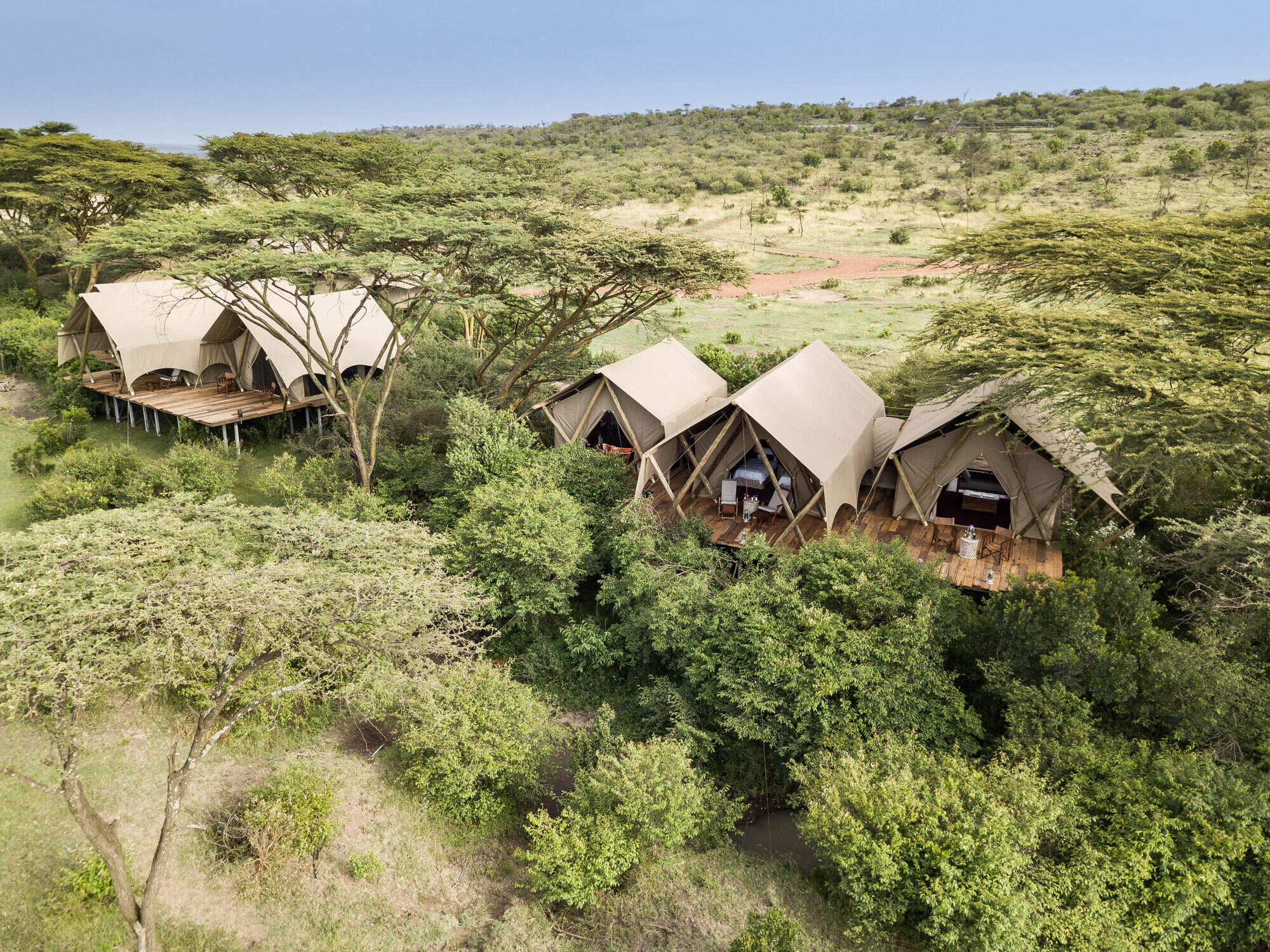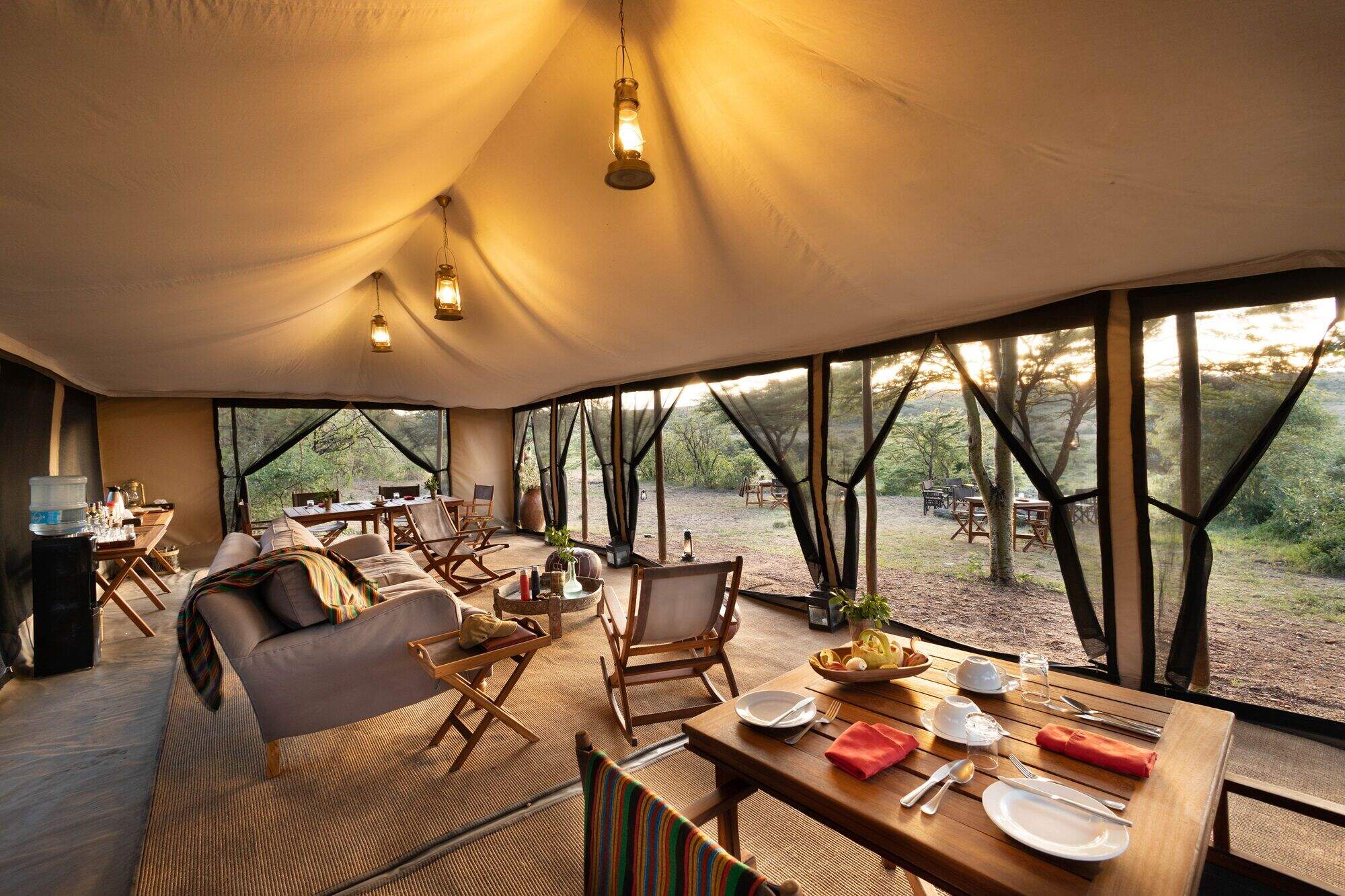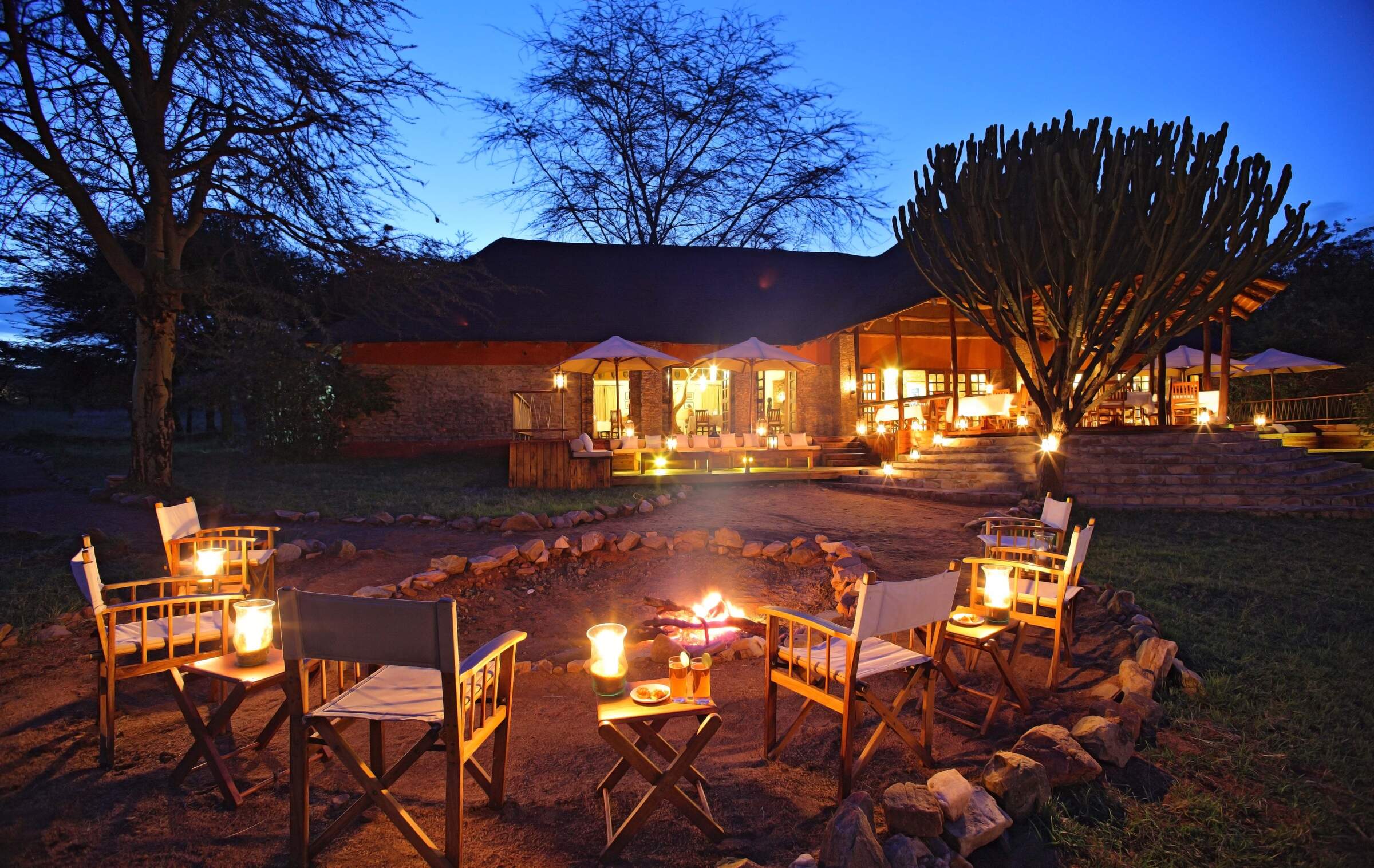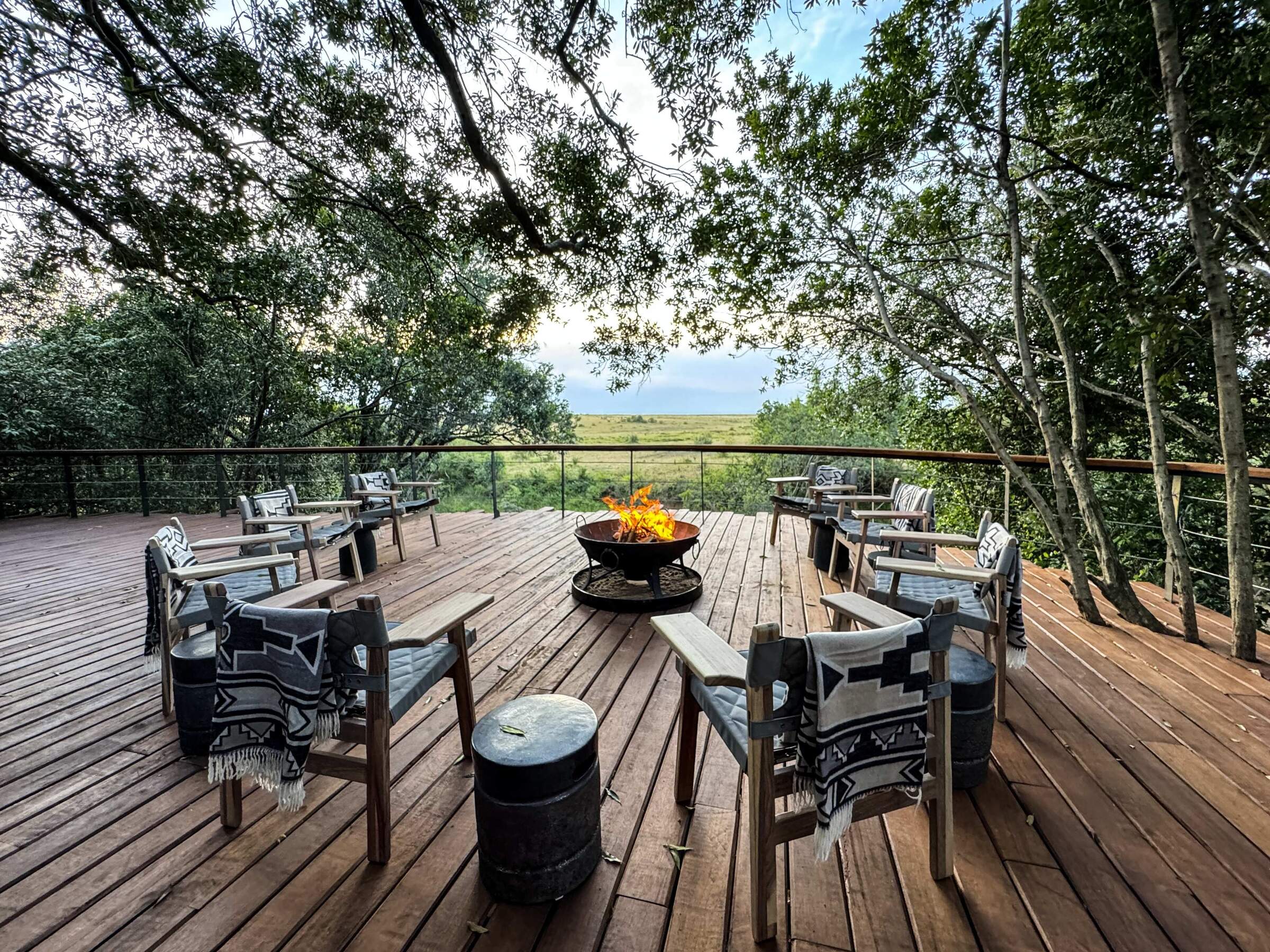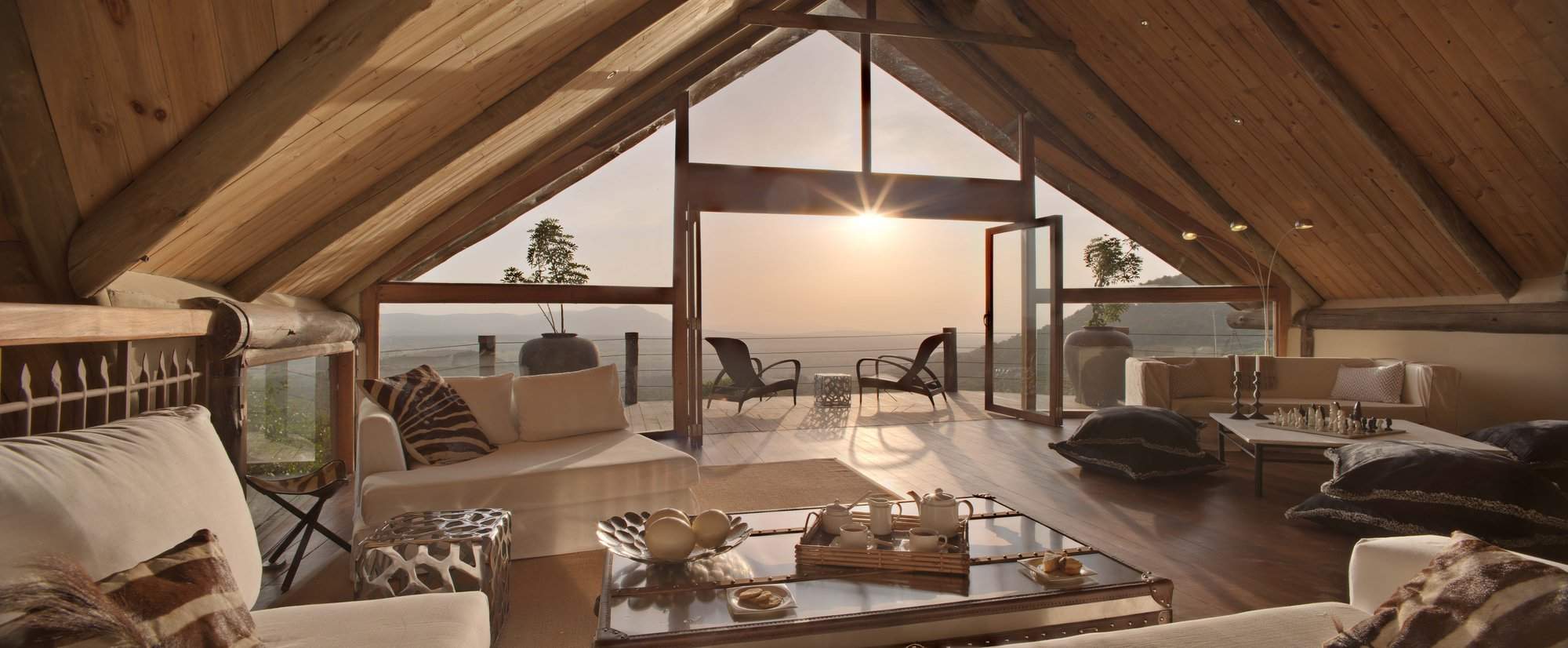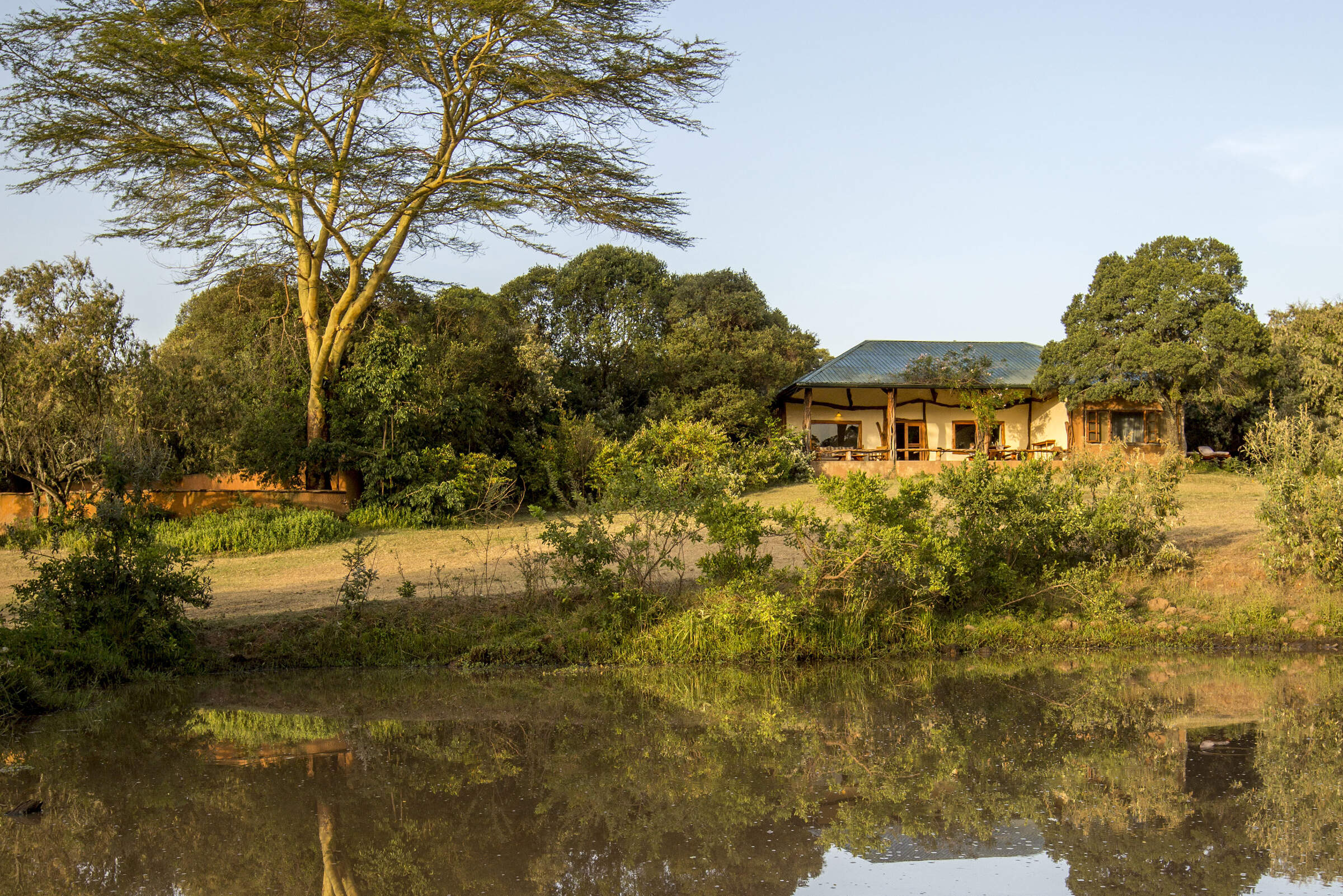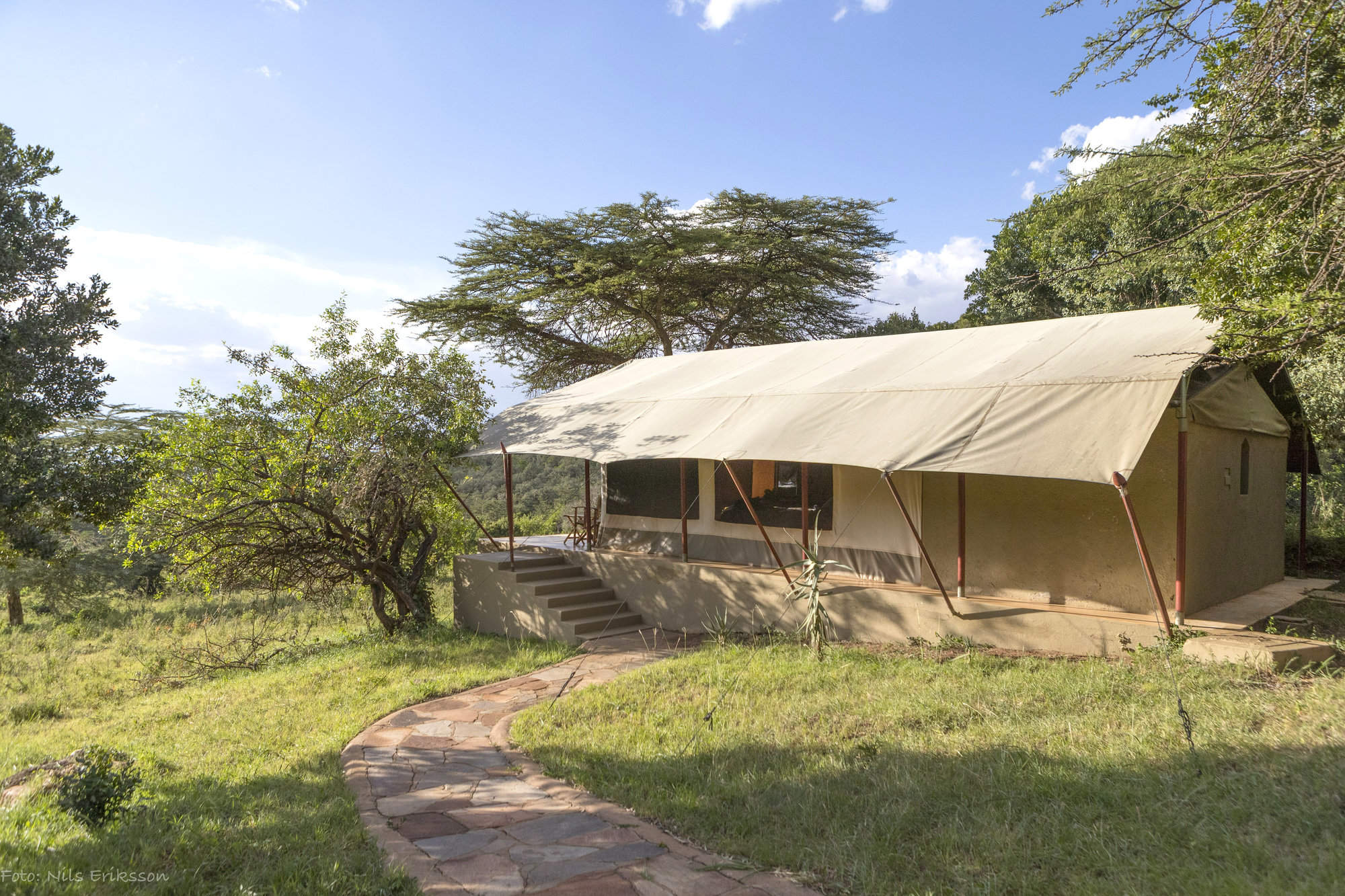About Basecamp Eagle View
Basecamp Eagle View is located in a stunning spot, with arguably the best views in the quiet 211km² Mara ...
... Naboisho Conservancy, a Maasai-owned conservancy north of the Maasai Mara National Reserve. It is small, with nine tented rooms set high on a hill. Each of these is cantilevered to the hillside, overlooking plains dotted with acacia trees from expansive, private balconies.
Location, community engagement and responsible tourism are the key elements here, which makes for a positive impact stay in the Mara. The views are exceptional for this reserve, where the terrain is generally fairly flat. The camp holds its own in terms of comfort and style against most mid-range camps in the Mara.
- Accommodation
- 9 tented rooms
- Children
- Good for 8 and over
- Open
- All year
Activities

4WD Safari

Birdwatching

Cultural excursion

Fly-camping

Guided walking safari

Hot air ballooning

Night drive

Private activities
Safaris visiting Basecamp Eagle View
Just ideas, we'll always tailor-make a trip for you

Looking for inspiration on where to travel next?
Visit our trip chooser to explore your options and find inspiration for your perfect African adventure
Inspire meTraveller reviews of Basecamp Eagle View
12 real, un-edited reviews from Expert Africa's travellers.
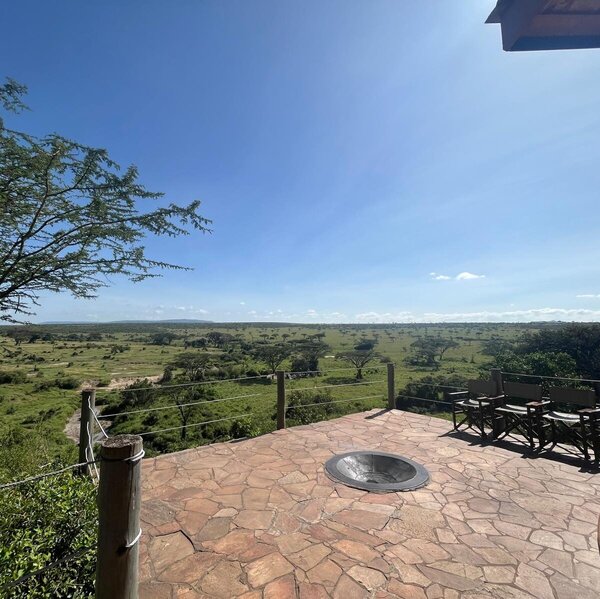
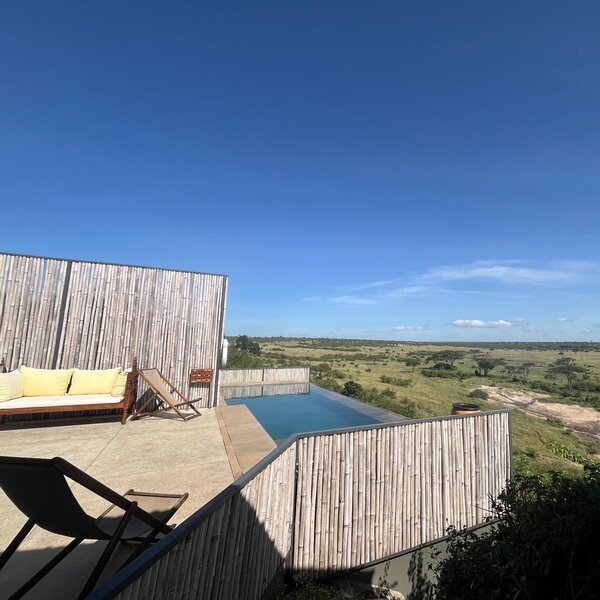
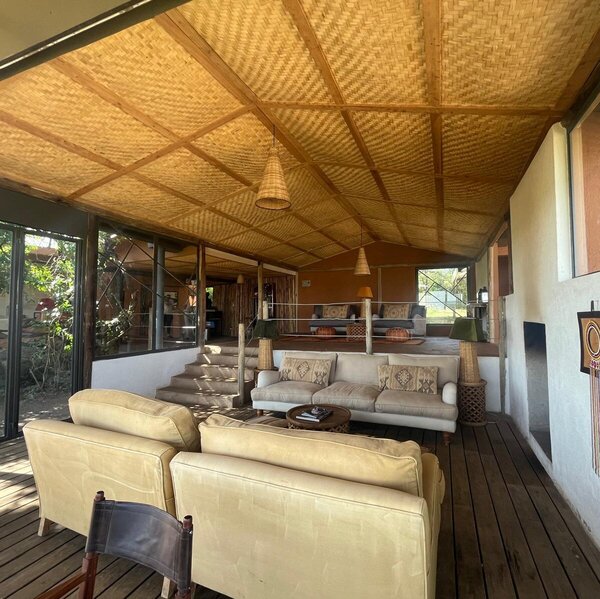
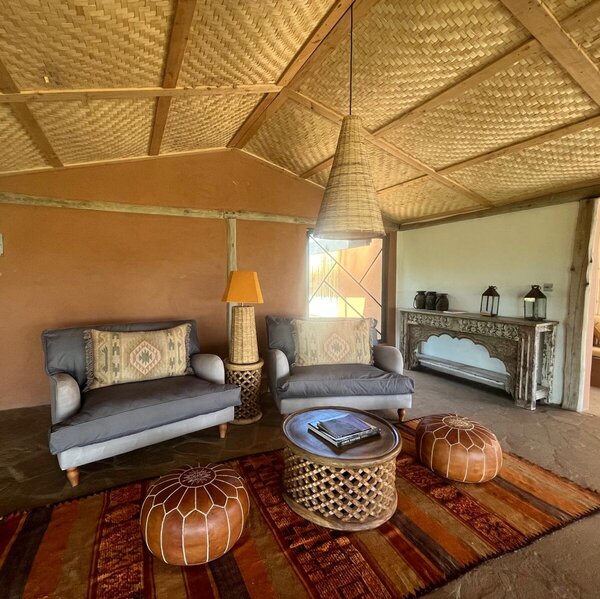
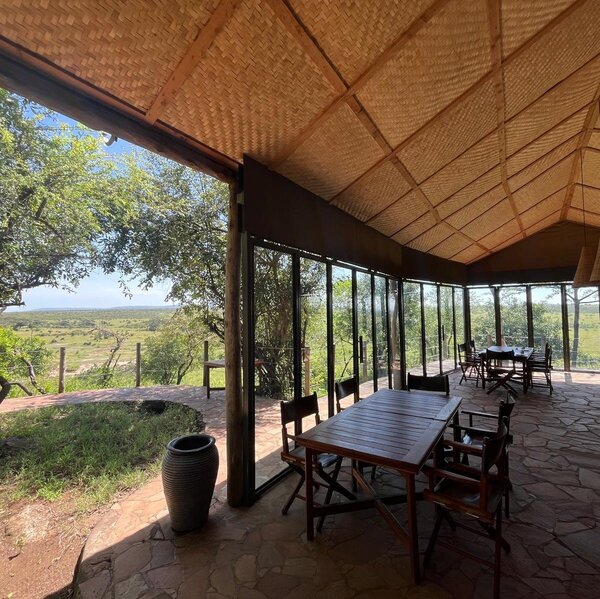
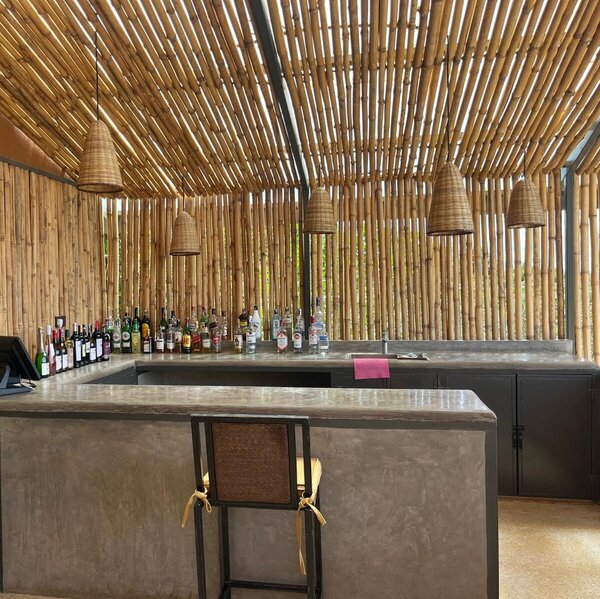
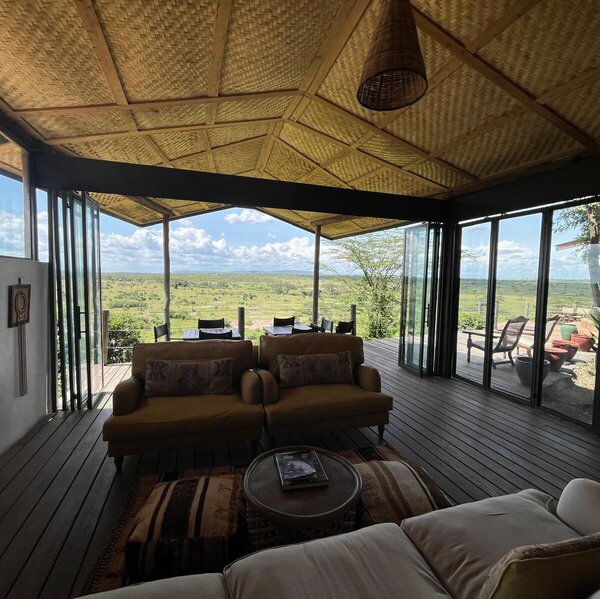
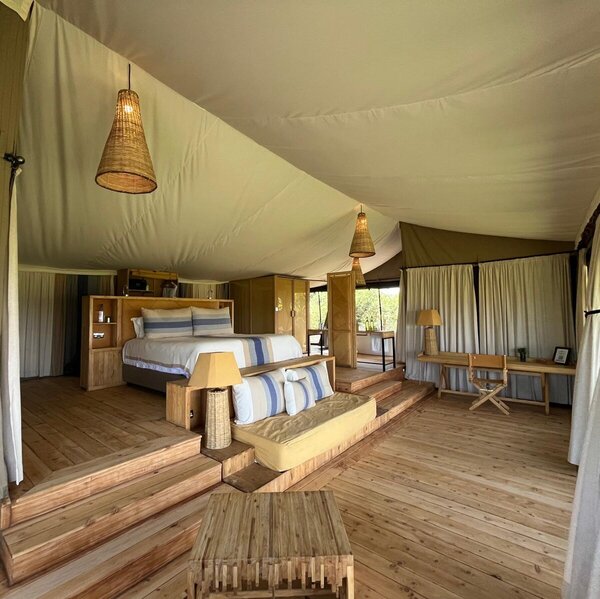
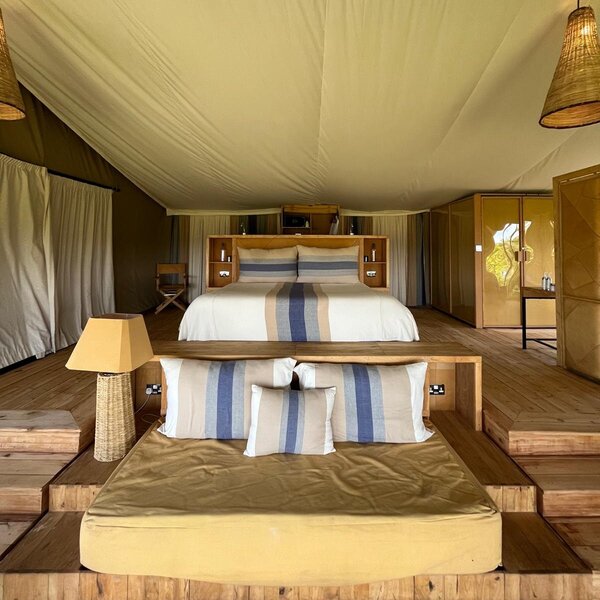
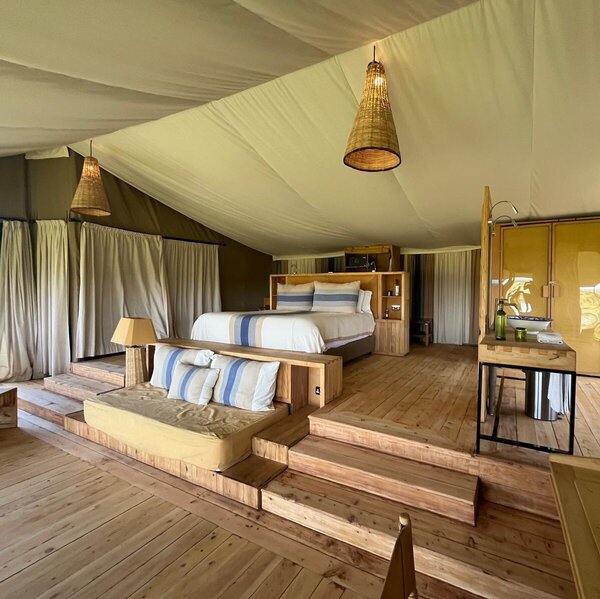
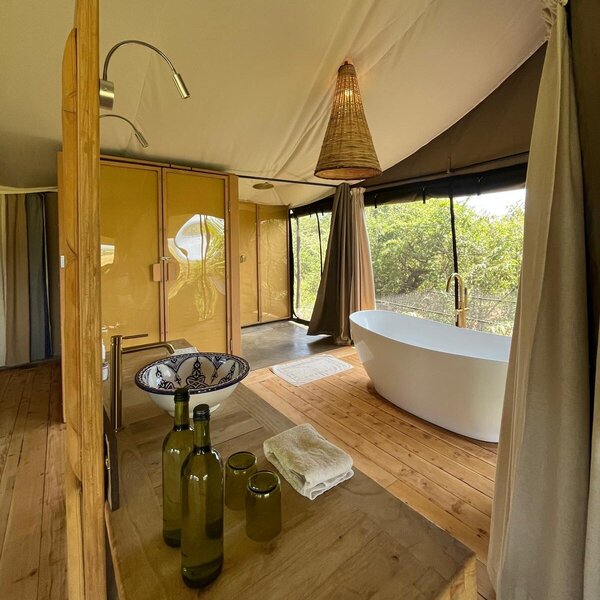
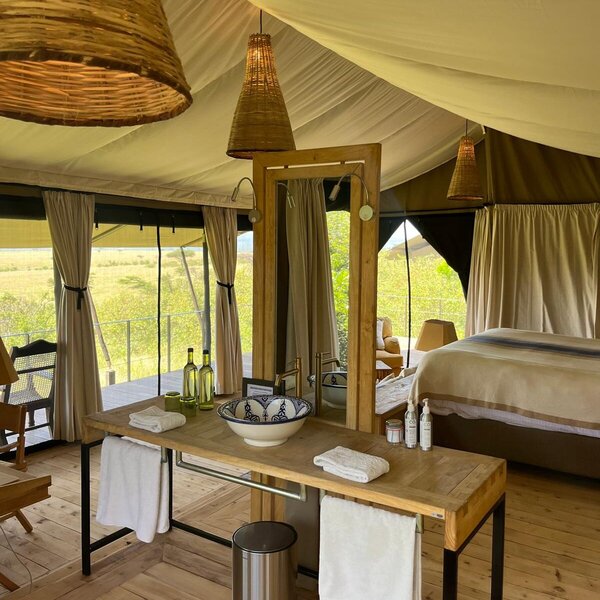
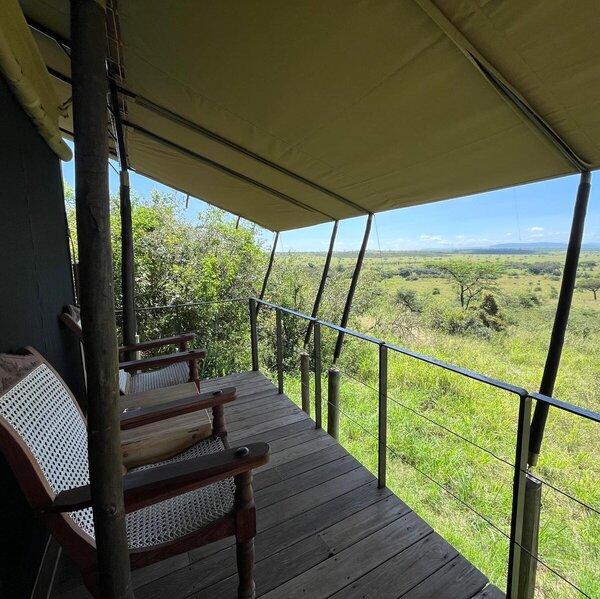
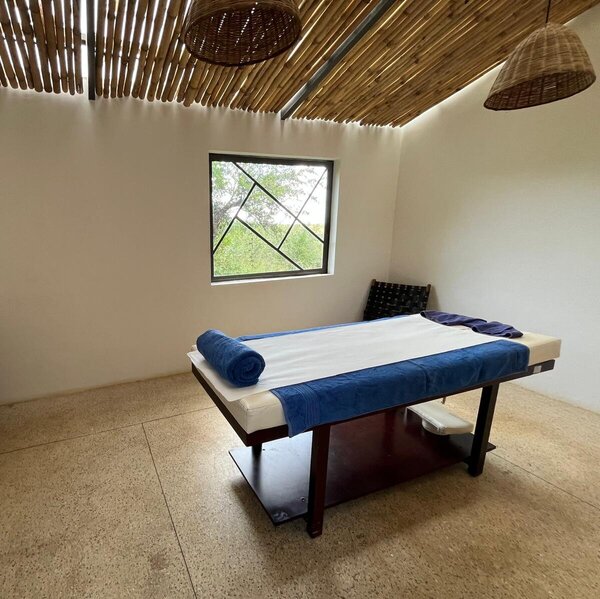
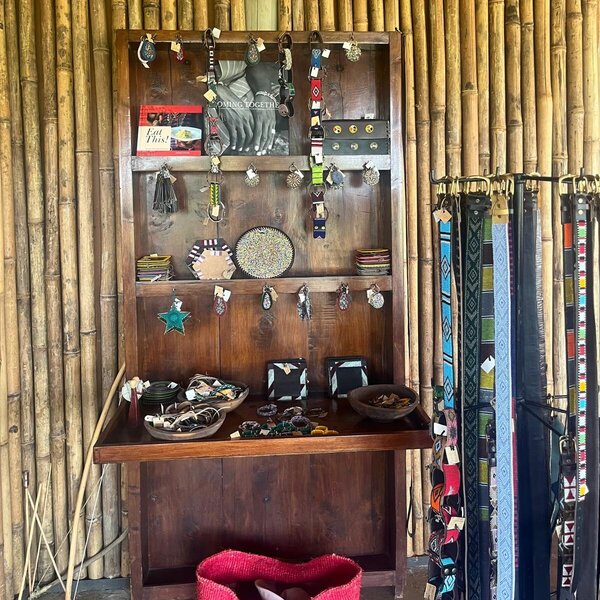

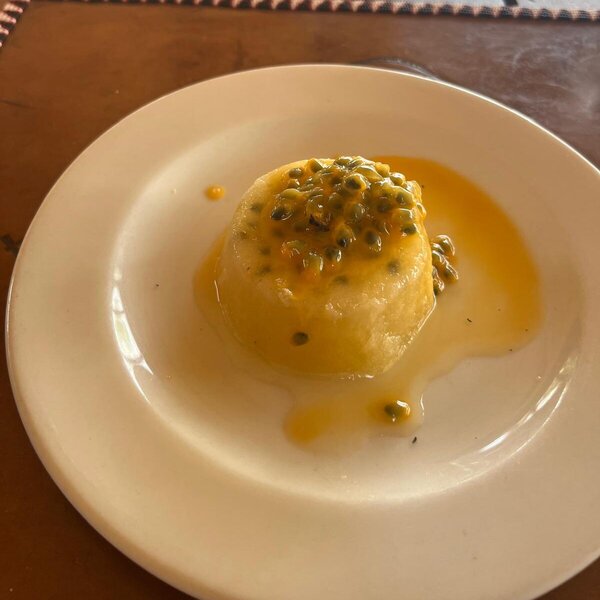
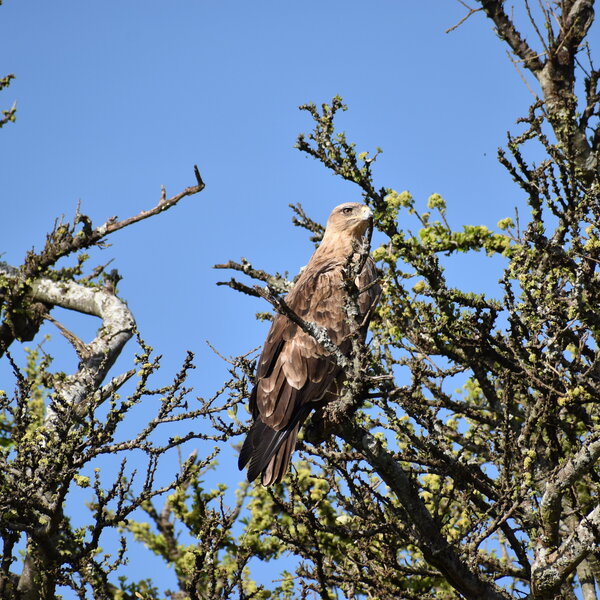
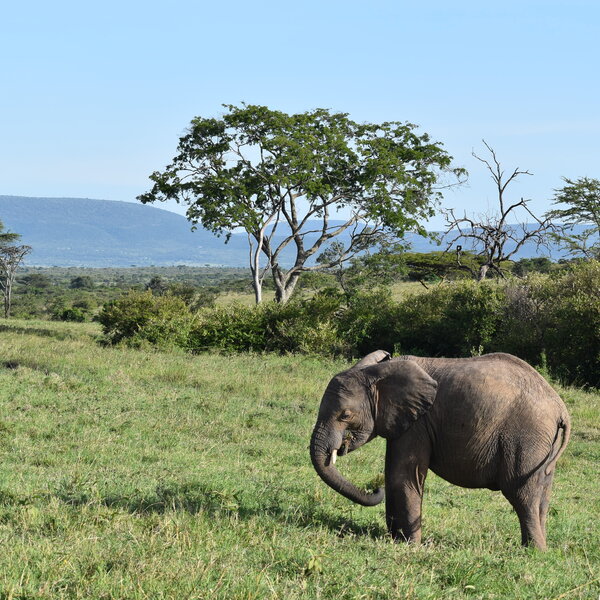
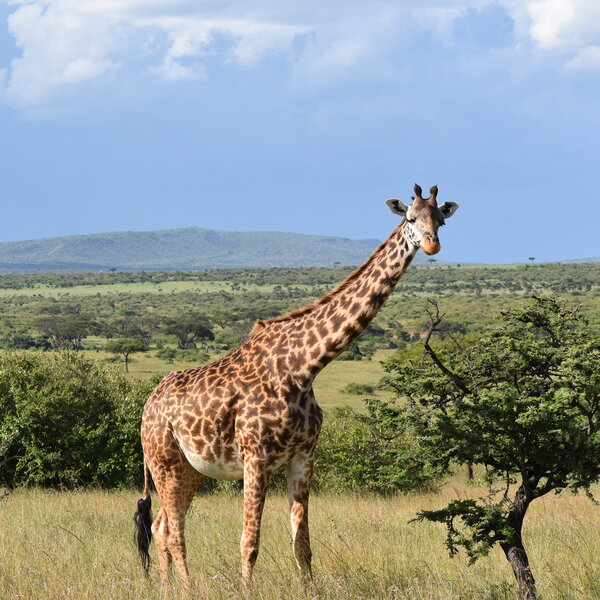
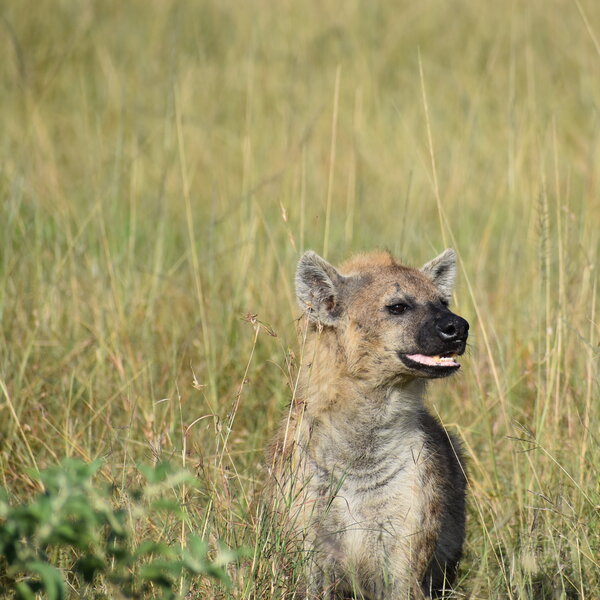
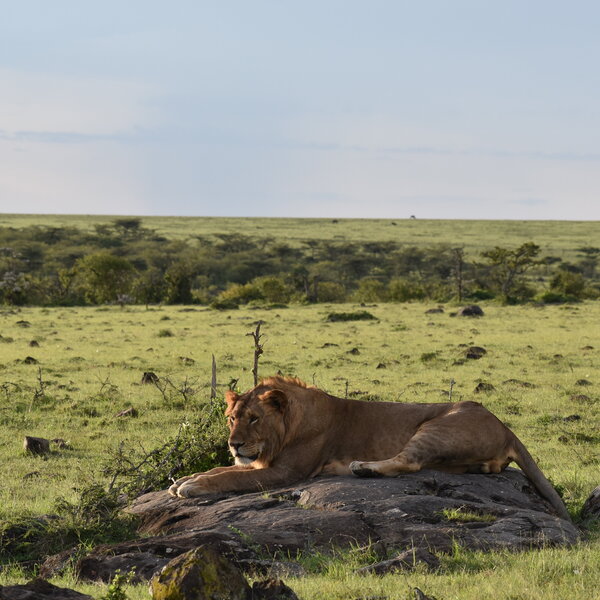
Expert Africa's gallery
When we travel we take lots of photos ourselves to give you a real and un-edited view of the safaris. See our 22 pictures of Basecamp Eagle View to get the candid view.
View galleryOur travellers’ wildlife sightings from Basecamp Eagle View
Click an animal to see our traveller's success in sighting them.
How we work this out.

100% success

100% success

100% success

100% success

100% success

100% success

100% success

100% success

100% success

89% success

67% success

14% success

13% success

11% success

0% success

0% success
Basecamp Eagle View's location
Look closer at the environment and surroundings of Basecamp Eagle View.
When to go to Maasai Mara Conservancies
Our month by month guide: What it's like to visit Basecamp Eagle View in Maasai Mara Conservancies
Jan
Feb
Mar
Apr
May
Jun
Jul
Aug
Sep
Oct
Nov
Dec
Kenya in January
Clear, hot days and warm nights make this high season a popular time for safaris and it’s also good for diving and snorkelling as water clarity is excellent and gets better as the dry season progresses. Most lodges and tented camps treat January after the New Year week is over, as mid-season, making it a good compromise in terms of value for money with reasonably reliable, dry weather and some greenery left in the landscape.
Expert Africa bases its description of climate and weather in January, like the other months of the year, on the climate records of roughly the last 100 years, and it's fair to say that the weather and seasons since the beginning of this century have been highly irregular and unpredictable.
- On average, January is the second driest month of the year
- Elephants dig waterholes in the dry riverbed in the Samburu reserve.
- Wildebeest and many antelope have their calving season, to February.
- Migrant birds are seen in huge numbers, especially in the Rift Valley.
- Sea water clarity around the coral reefs generally good.
Our view
Fantastic: the very best time to visit
Weather in January
Kenya in February
With the short dry season well established, the grass grazed down and wildlife gathering close to water points, this is still a good time for a safari. Good water clarity in the Indian Ocean's coastal waters makes for excellent diving and snorkelling conditions.
Expert Africa bases its description of climate and weather in February, like the other months of the year, on the climate records of roughly the last 100 years, and it's fair to say that the weather and seasons since the beginning of this century have been highly irregular and unpredictable.
- On average, February is the driest month of the year.
- It’s sometimes possible to swim with whale sharks at Diani Beach.
- Migrant birds are still seen everywhere, especially near water.
- This is usually peak calving season for wildebeest and many antelopes.
- This month is often the hottest of the year, especially on the coast.
Our view
A very good time to visit
Weather in February
Kenya in March
Hot, increasingly humid weather – with good diving and snorkelling conditions at the start of the month – gives way to rains and lower accommodation costs. Expert Africa bases its description of climate and weather in March, like the other months of the year, on the climate records of roughly the last 100 years, and predicting the seasons since the beginning of this century has been difficult.
March is the month when – traditionally – intensely hot conditions build up until a cloudburst finally happens at the end of the month or in early April, to relieve the humidity. As ever, regional variations across the country can greatly impact on visitors' experiences.
- Sea-water clarity is best for diving before the long rains start.
- Visitor numbers are low, though the Easter holidays can be busier.
- Night skies can be scintillatingly clear in early March.
- Cropped down savannah grasses can make it easier to see the wildlife.
- Temperartures climb high, especially at lower elevations.
Our view
A good time to visit, with pros & cons
Weather in March
Kenya in April
April sees the full onset of the southeast monsoon wind or kusi, which heralds the long rains. Temperatures drop soon after the rains are established and you’ll often have facilities largely to yourself in this more affordable low season, sometimes known as the "green season". The bush quickly springs to life, with greenery sprouting almost before your eyes. While you're likely to get a fair number of heavy showers, the breaks in the rain can yield sparklingly clear conditions.
With the dust settled and bright sun piercing the clouds, conditions can be sublime for photography, especially first thing in the morning or in the late afternoon with another storm brewing. You may be lucky, or you may find conditions very wet and muddy.
- A wet month, the coast often gets more than 300mm (12in) of rain.
- Sunny spells can provide great light for photography.
- Buffalo and zebra calving season often happens in this month.
- Baby crocodiles hatch, for example on Central Island in Lake Turkana.
- Palearctic migrant birds gather to fly north to breeding grounds.
Our view
A time to avoid if possible
Weather in April
Kenya in May
While game viewing can be trickier as vegetation runs riot, between the cloudbursts the colours and light are great for photography at this time of year. Expert Africa bases its description of climate and weather in May, like the other months of the year, on the climate records of roughly the last 100 years, and while it's reasonable to expect heavy rains in many parts during this month, especially on the coast, the rains don't always come evenly or in some areas come at all.
In an El Niño year, the so-called long rains that normally are established across much of the country by May can be meagre, to the despair of farmers. On the other hand in a La Niña year, the long rains can bring floods. On the coast, the monsoon winds make the climate much more predictable, with heavy rains common throughout this month.
- Frogs breed in the ponds in the Arabuko Sokoke Forest near Watamu.
- Wildebeest, impala and other grazers are in rut (the breeding season).
- Kilimanjaro looks its best as heavy rain falls as snow on the summit.
- There's a sharp peek of rainfall on the coast with many rainy days.
- Accommodation prices are uniformly low, while some camps close.
Our view
A time to avoid if possible
Weather in May
Kenya in June
The rains give way to cloudy, cooler weather, often making for comfortable conditions by the end of the month, especially in the highlands. Starting from mid-June or the beginning of July and running until the end of October, this is the high season, and accordingly has higher accommodation rates and – at least until early September – higher numbers of visitors.
While the early part of June can often be rainy on the coast, it can be a great time to go on safari, with fresh greenery, many young animals and good photographic conditions with clear air.
- The Taru Desert, inland from the coast, is carpeted with flowers.
- The Lake Turkana Cultural Festival is held in Loiyangalani.
- Madaraka Day (commemorating self rule) is 1 June.
- The annual Lewa marathon runs a course through the wildlife.
- The Diani Rules "sports" event rips up the rulebook at Diani Beach.
Our view
A good time to visit, with pros & cons
Weather in June
Kenya in July
Kenya’s “winter" season sets in (winter is a misnomer but locals feel the change), and the highlands can be rather grey. Skies are often cloudy and the days can be surprisingly cool, with an average daytime high in many highland safari areas of 15-20°C and night-time temperatures dropping below 10°C in Nairobi and the highlands. Lower parts of the country and the coast are usually warm and dry, typically reaching highs of around 25°C with lows in the high teens.
As this is the start of the high season, coinciding with the usual arrival of the wildebeest migration in the Maasai Mara, July is a busy month. Ask your Expert Africa specialist to advise on how to avoid the crowds, which is not that difficult to do.
- The wildebeest migration usually reaches the Maasai Mara in July.
- Simbi Lake (Kisumu) and Crater Lake (Naivasha) can attract flamingoes.
- Watersports start to pick up and some surfing is possible at Malindi.
- Afternoon thunderstorms are a common feature in the Maasai Mara.
- The sea can be choppy along the coast, making diving difficult.
Our view
A good time to visit, with pros & cons
Weather in July
Kenya in August
The Great Migration fills the plains of the Maasai Mara, and school’s out, so the park roads are full of tourists – ask your Expert Africa specialist for advice on crowd avoidance tactics. Choose a private conservancy rather than a public national park or national reserve for quieter conditions.
Like July, August is generally mild and relatively dry in the safari areas, but it can be very chilly in the highlands, even in the middle of the day, and hail occasionally falls above altitudes of around 2,400m (8,000ft). Nairobi can be disappointingly overcast, with low cloud.
- Apart from Christmas holidays, this is the busiest month of the year.
- Late August sees peak wildebeest drama at the Mara River crossings.
- Coastal winds are good for kite- and wind-surfing.
- Few mosquitoes are around at this generally dry time of year.
- The annual Camel Derby takes place in the Samburu capital, Maralal.
Our view
A good time to visit, with pros & cons
Weather in August
Kenya in September
The skies clearing of cloud signals the start of hot, dry weather with little chance of rain – and, after the first few days of the month, far fewer visitors – making the latter part of September a good time for a quieter safari. While early September is often good for dramatic migration crossings along the Mara River, you might consider deliberately postponing your trip until later in the month, when the migration can still be very impressive and visitor numbers fewer.
If tourist surges are somewhat predictable, however, the patterns of the wildebeest migration are more volatile, and like all of Expert Africa's climate and weather assessments, they are based on accumulated years of experience rather than guaranteed certainty.
- This is still high season, with prices to match.
- Many river crossings take place on the Mara river in both directions.
- Natural bush fires flush out insects and small animals for predators.
- The Rift Valley Music Festival takes place by Lake Naivasha.
- With school holidays over by early September, late-month is quieter.
Our view
Fantastic: the very best time to visit
Weather in September
Kenya in October
Still hot, mostly dry and not too busy, this is many people’s preferred month for a safari, and it’s also good for diving and snorkelling. The wildebeest and zebra herds of the great migration are often still to be seen, though in dwindling numbers. The swamps of Amboseli attract thirsty wildlife including large herds of elephants.
While we wouldn't expect much rain across most of the country this month, the climate has become so unpredictable that you can never say never, and the possibiity of the short rains – usually associated with November to mid-December, starting early, can't be discounted.
- This month sees the tail end of the great migration in the Mara.
- Palearctic migrant birds start to arrive, staying until March.
- Turtle nests hatch at Watamu, until November.
- Amboseli elephants focus on the swamps for their daily water.
- The Indian Ocean monsoon winds turn from southeast to northeast.
Our view
A very good time to visit
Weather in October
Kenya in November
The northeast monsoon wind or kaskazi heralds the start of the “short rains", usually some time in the second half of the month. From November to mid-December, this is the low season, and accordingly has lower accommodation rates and lower visitor numbers. Across most of the country you can expect warm, somewhat cloudy weather, with occasional heavy showers and localised flooding.
Expert Africa bases its description of the climate in November, like the other months of the year, on the records of roughly the last 100 years, and it's fair to say that the seasons since the beginning of this century have been highly irregular and unpredictable: some years the short rains don't come at all, or don't reach every part of the country. In an El Niño year, the November short rains can be very heavy, but in a La Niña year, they can fail completely.
- Swimming with dolphins in Lamu can be done from now until April.
- Birders gather at Ngulia in Tsavo West to ring Palearctic migrants.
- The Lamu Cultural Festival takes over the town and Lamu Creek.
- Agricultural shows often take place regional market towns.
- This is low season, so camps can be great value, with special offers.
Our view
A good time to visit, with pros & cons
Weather in November
Kenya in December
In a typical December, the rains usually finish by middle of the month, leaving the landscape looking its best, under clear blue skies, and heralding the start of the second peak tourist season from around 20 December to the first week of January. Our assessment of the likely weather in December, like the other months of the year, is based on climate records, and it's fair to say that the seasons since the beginning of this century have been highly irregular and unpredictable.
Christmas can sometimes be wet, but most years the rains have finished a week or two earlier, with the festive season ushering in the perfect combination of clear skies and sunshine by day and starry nights.
- Christmas and New Year are busy, with the lodges and camps full.
- Rates are highest after 24 Dec, with supplements on public holidays.
- Republic Day and Independence day are celebrated on 12 December.
- Good kite- and wind-surfing restarts, with strong northeasterly winds.
- Mango season begins, providing excitement for primates and elephants.
Our view
A good time to visit, with pros & cons
Weather in December
Other areas in Kenya
Kenya fact file
Useful information and advice to help you prepare for a trip including Basecamp Eagle View
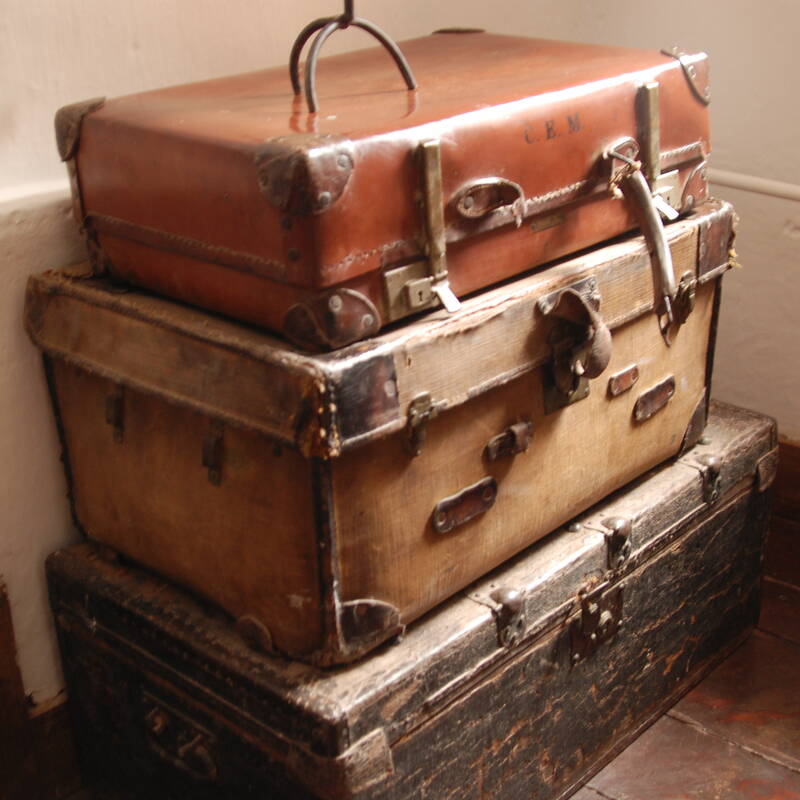
Kenya safari packing list
Advice and tips on what to take on safari

LGBT travel in Kenya
Attitude, the law & our experiences

Safety in Kenya
Keeping safe, our experiences & our advice

Tipping in Kenya
Expectations & guidelines for tipping
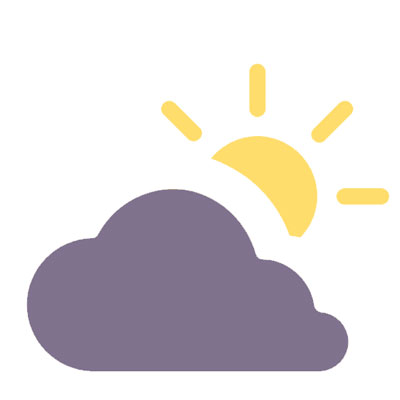
Weather & climate
The best time to visit Kenya
Excursions from Basecamp Eagle View
Optional extra day-trips and excursions possible whilst you're staying at Basecamp Eagle View. Talk to us: these are usually best arranged before you go.
Other lodges in Maasai Mara Conservancies
Alternative places to stay in this same area.
